
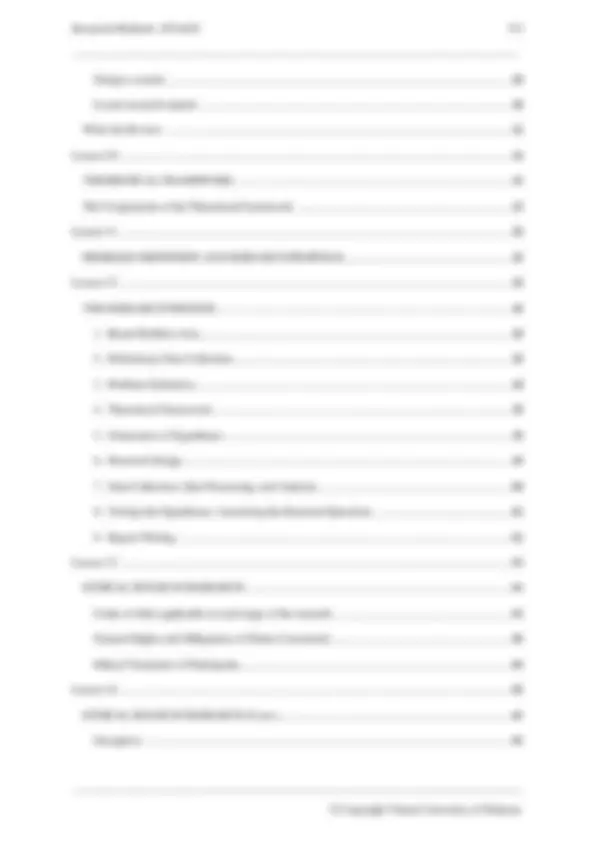
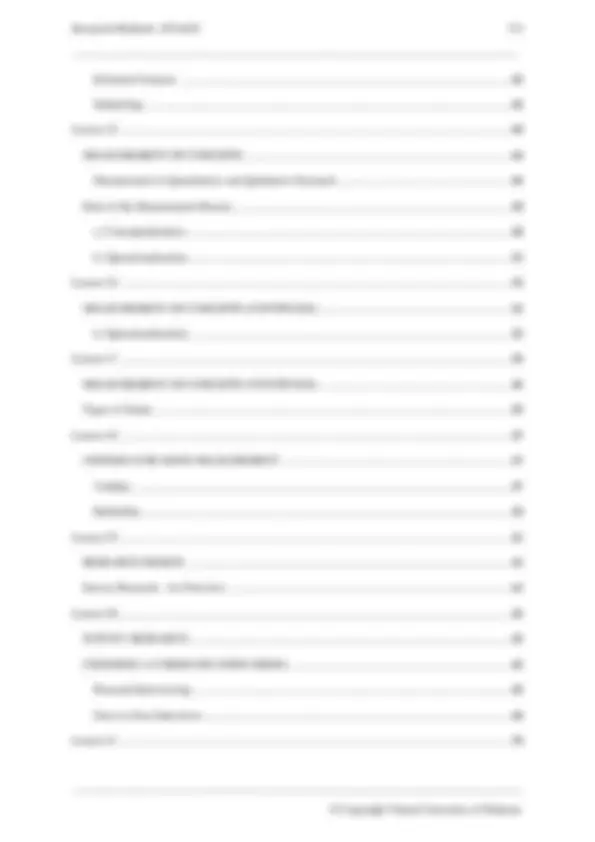
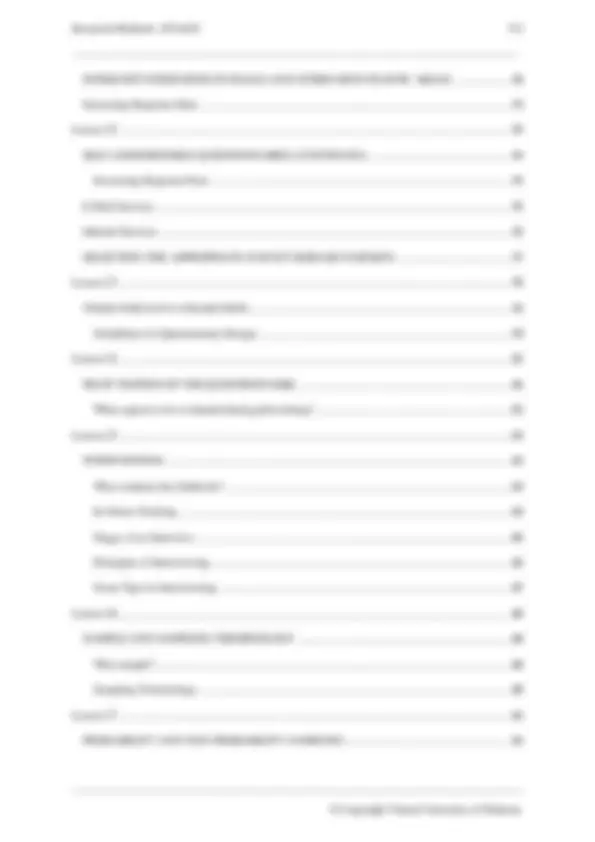
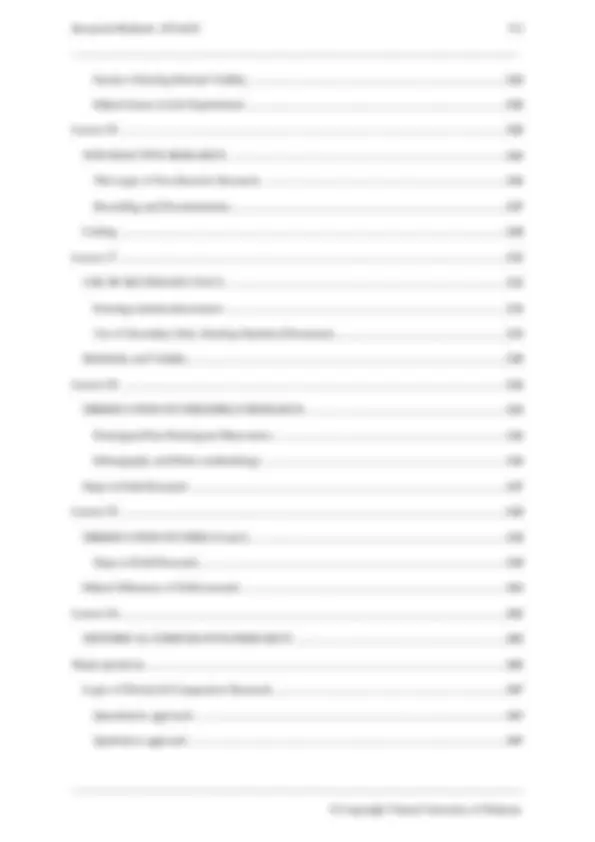
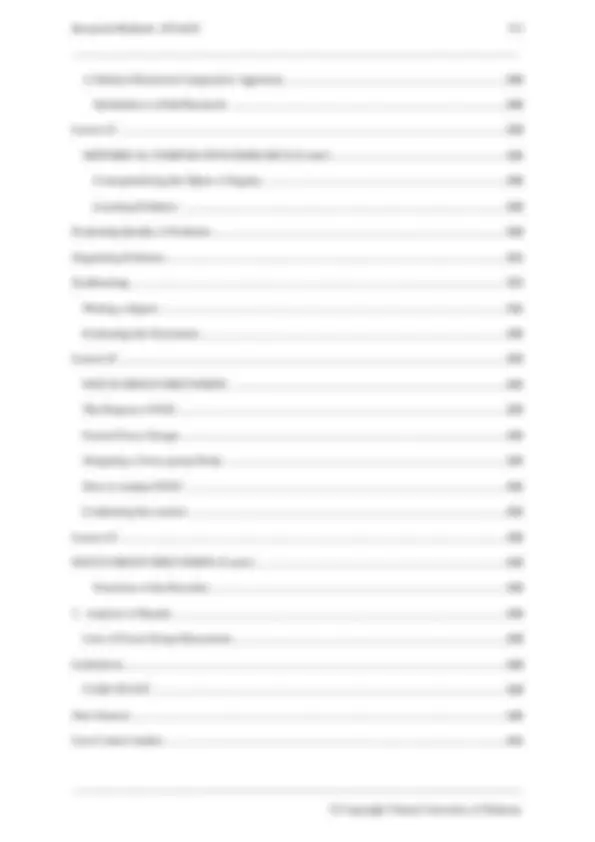
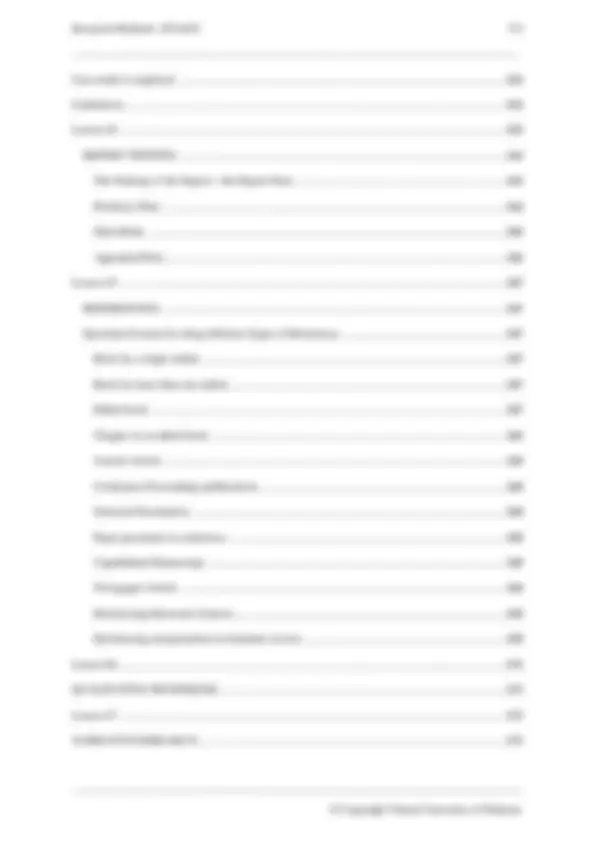
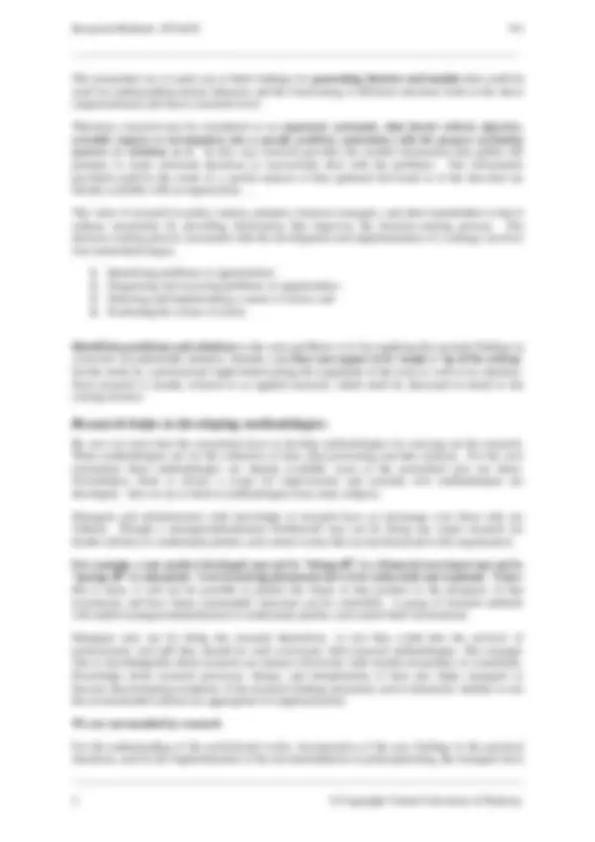

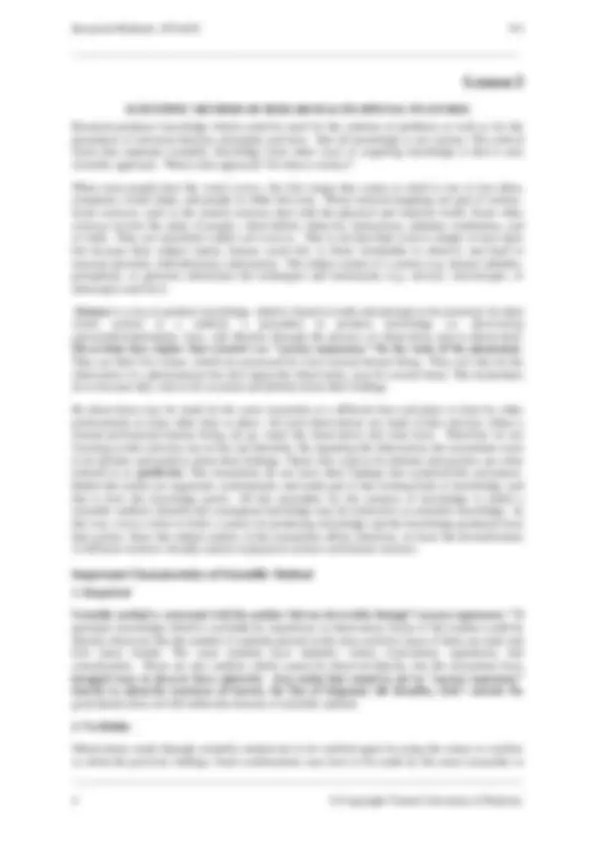
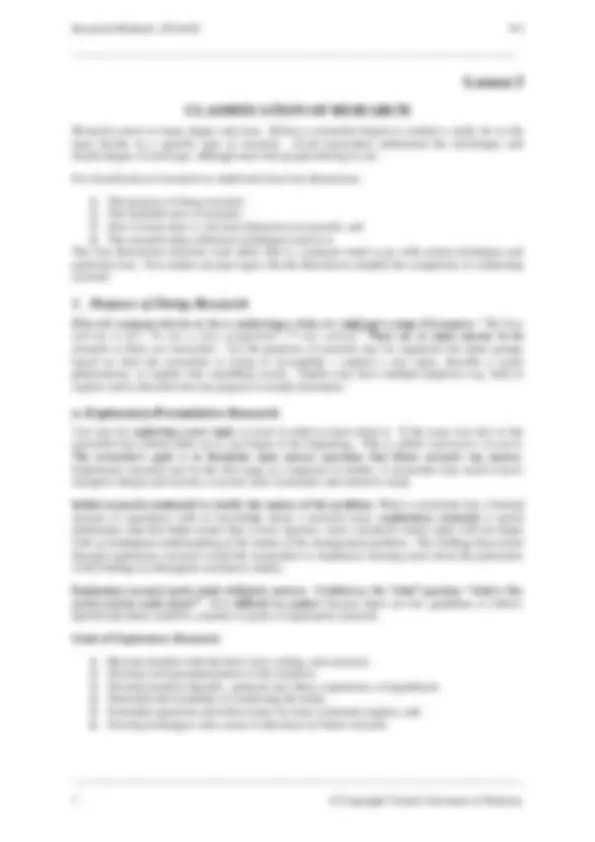
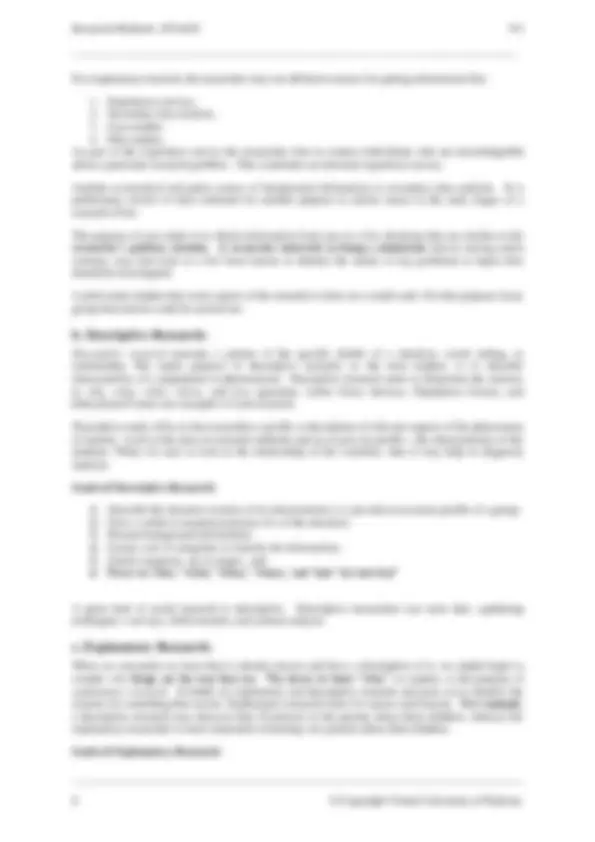
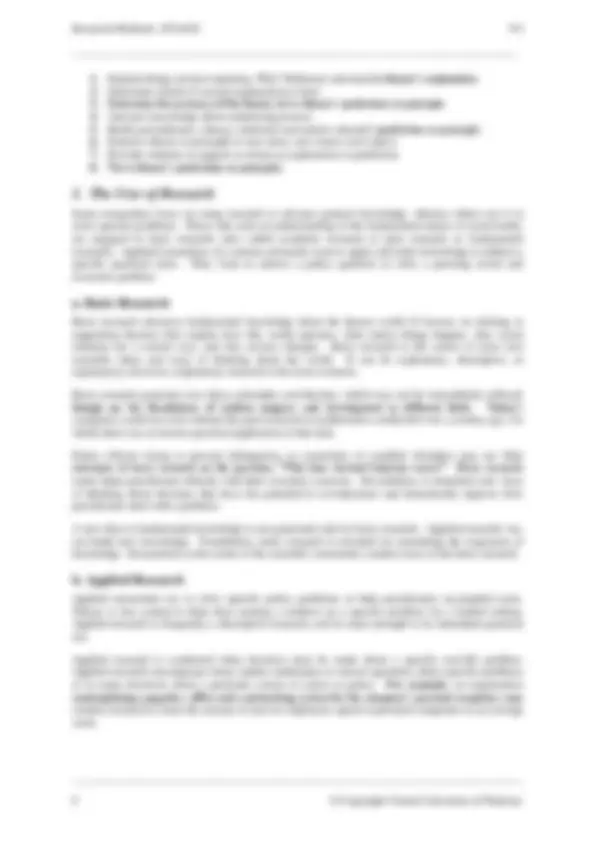
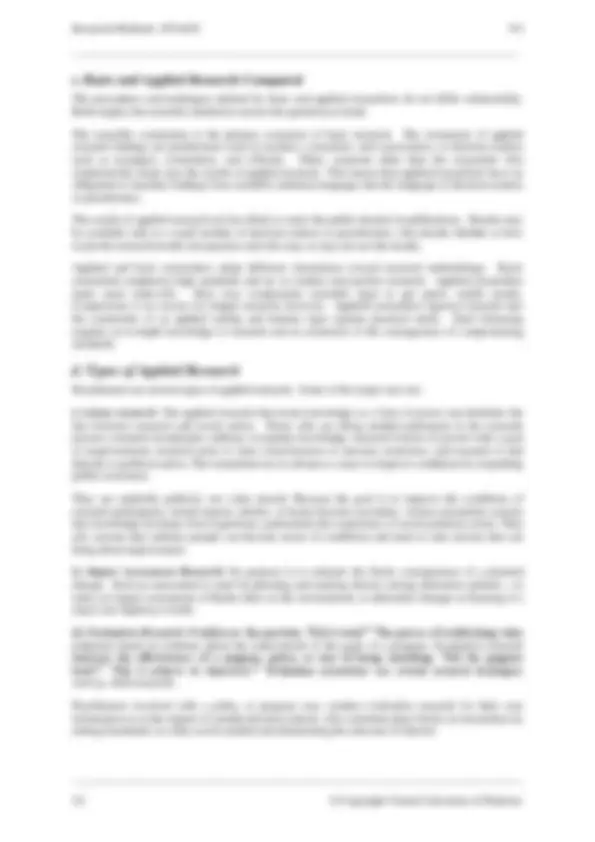
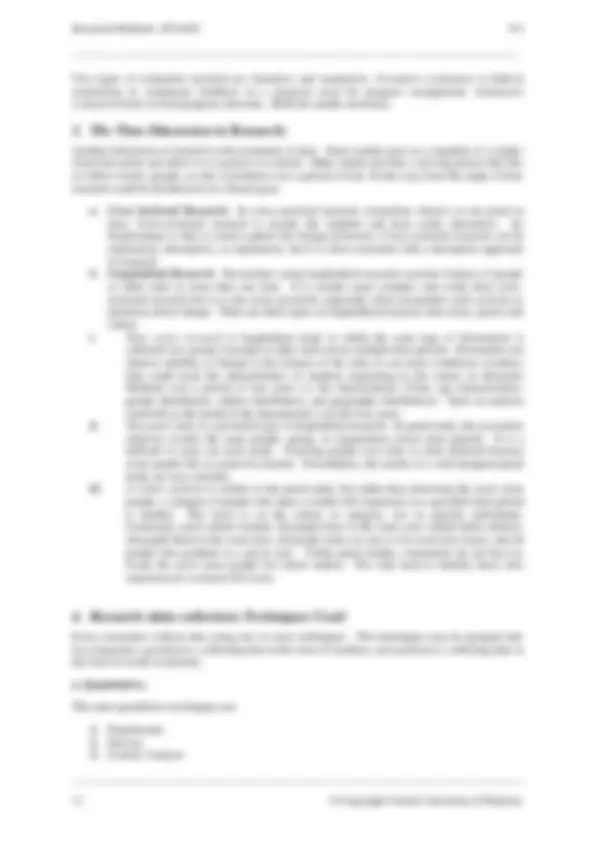

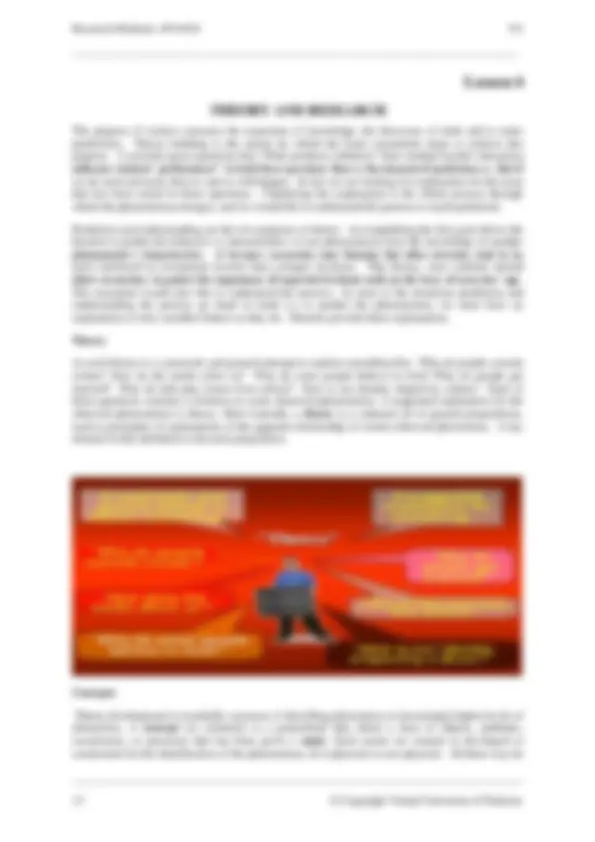
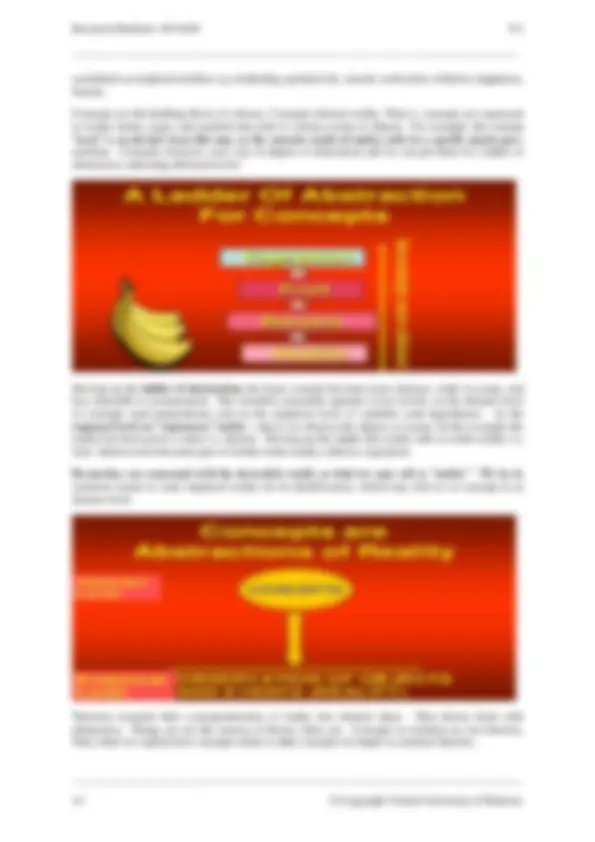
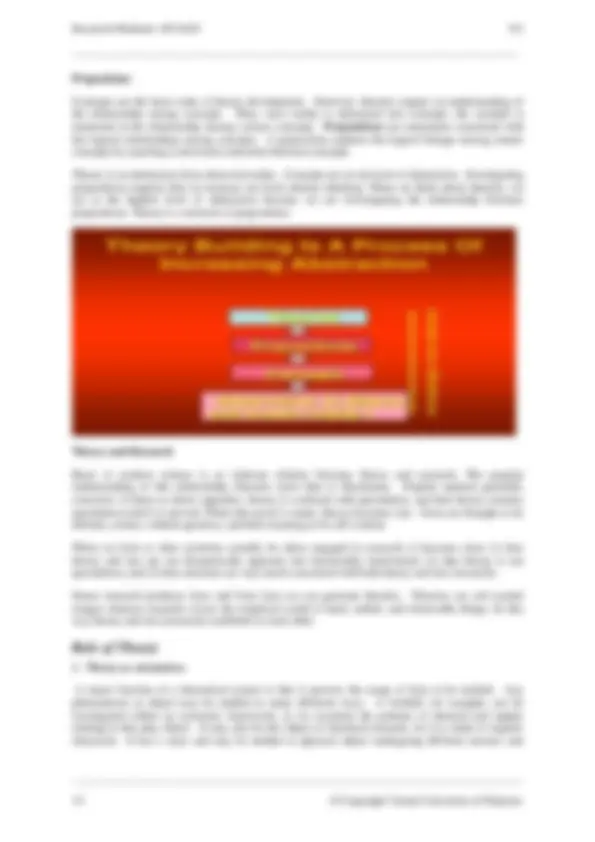
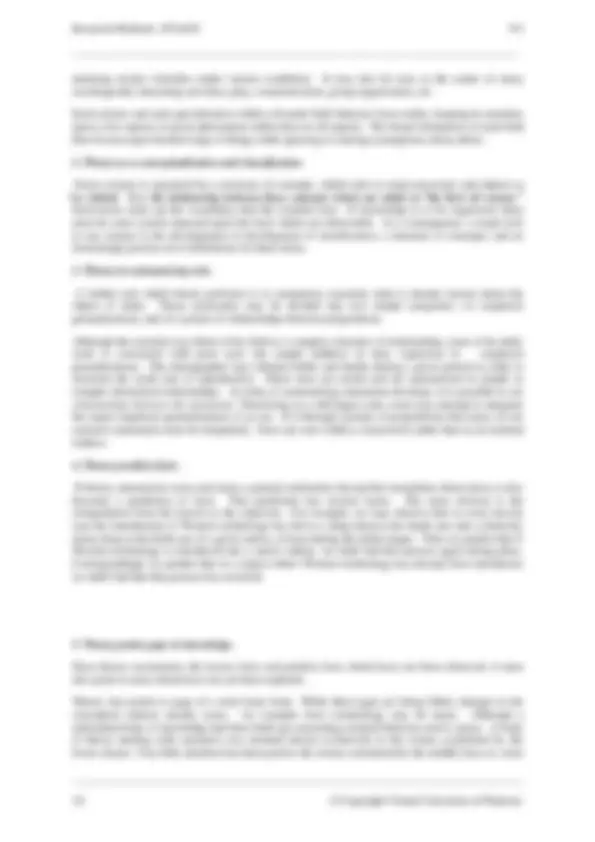
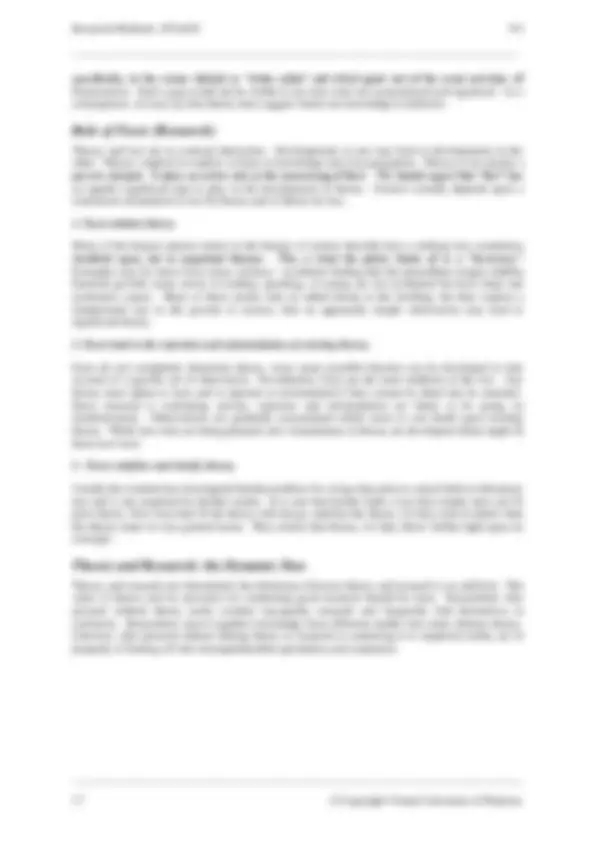
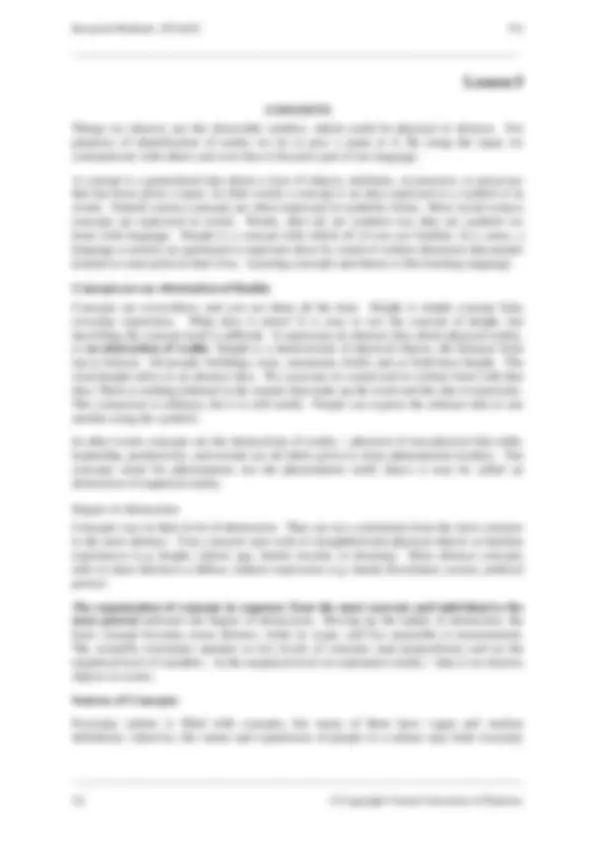
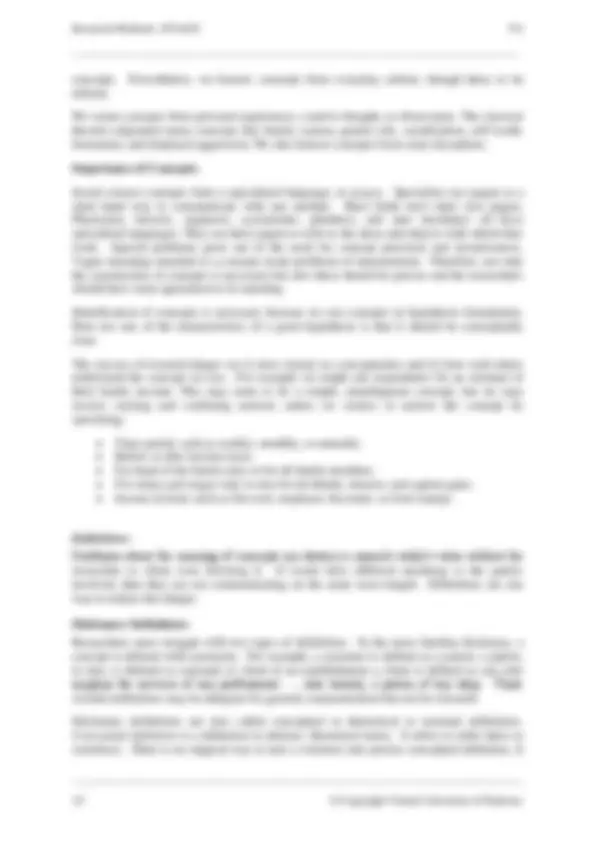
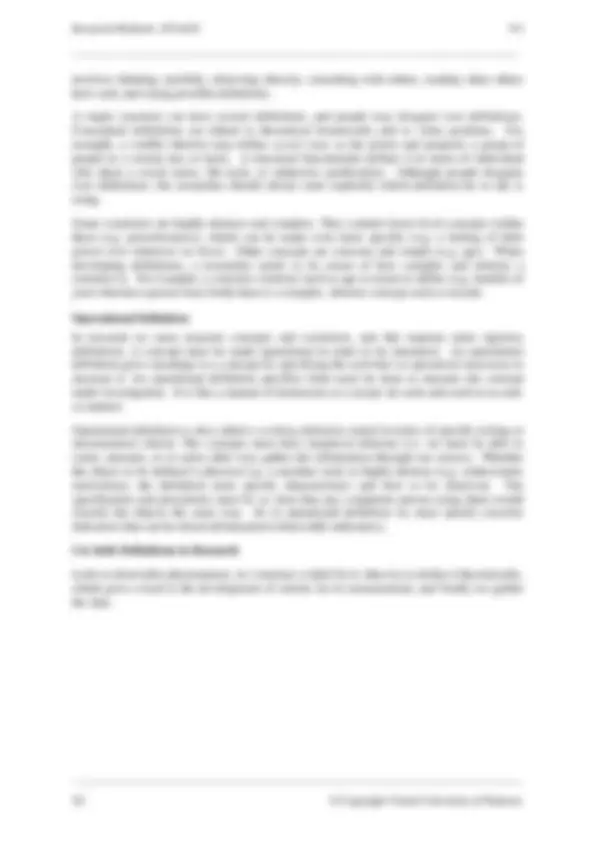
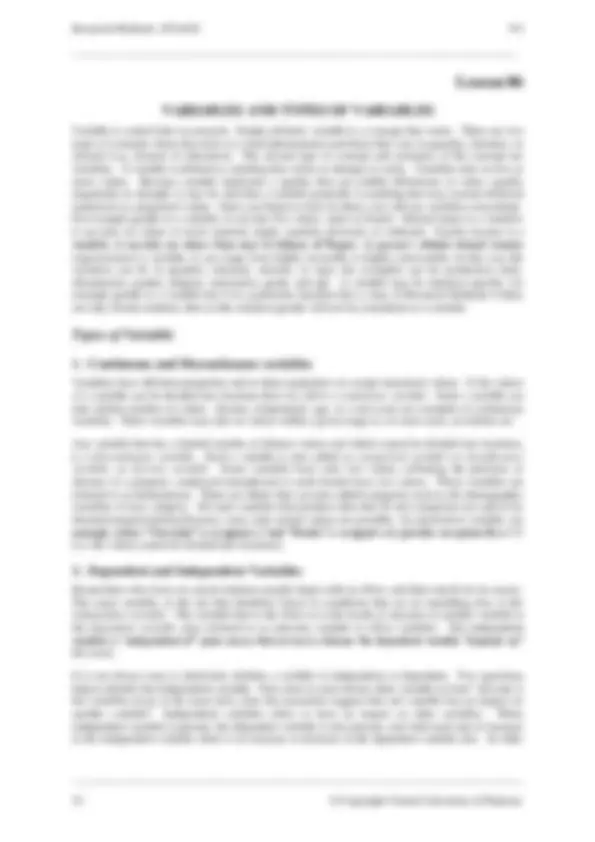
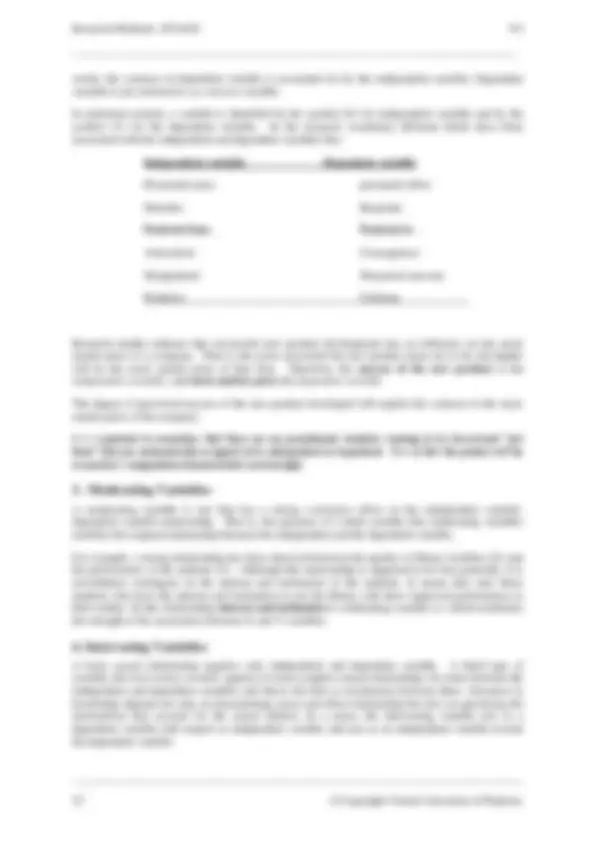
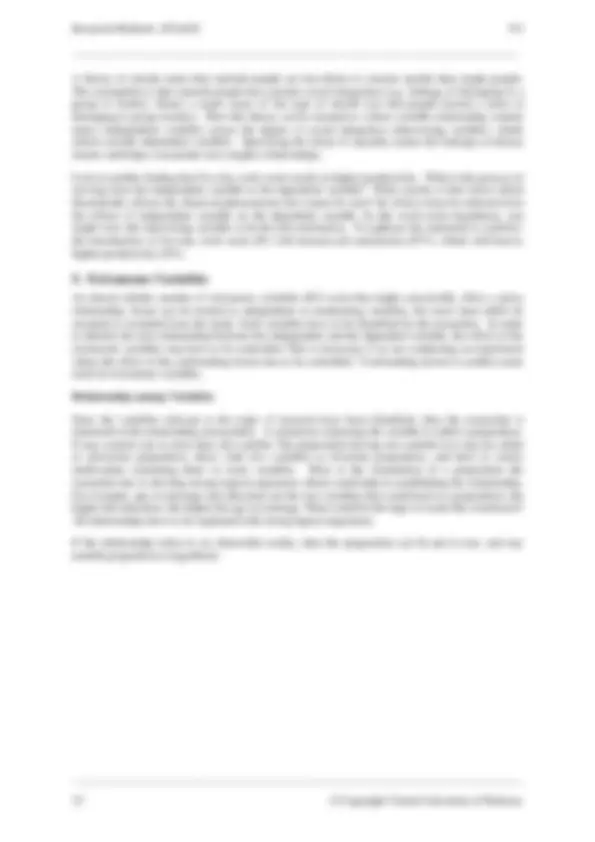
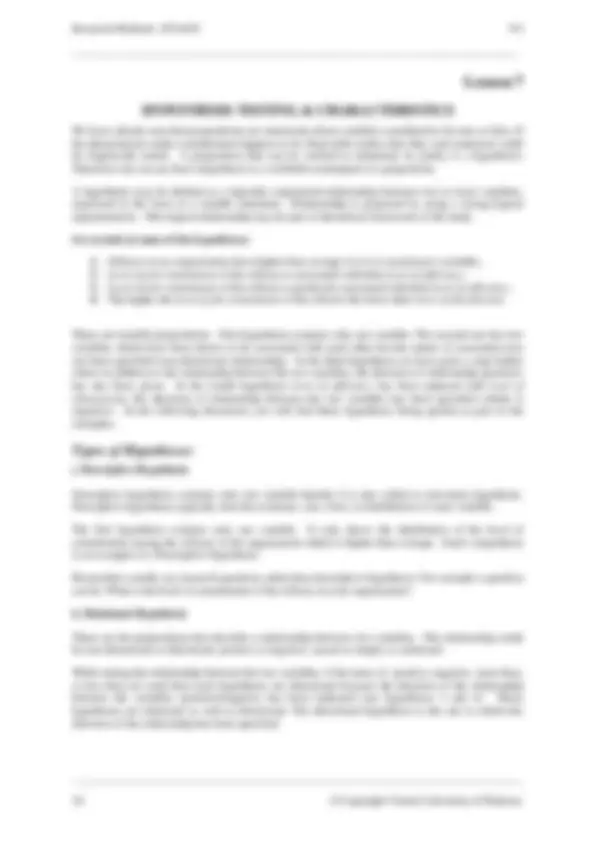
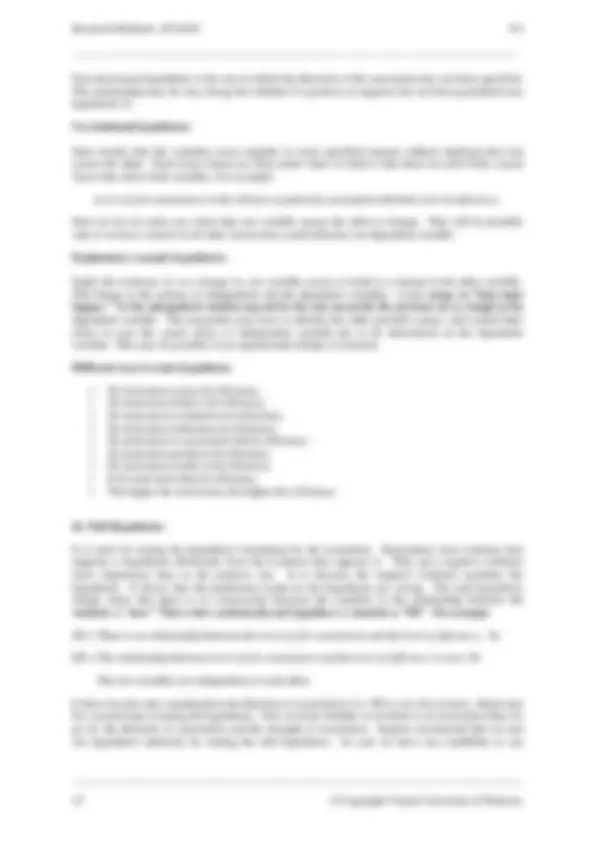
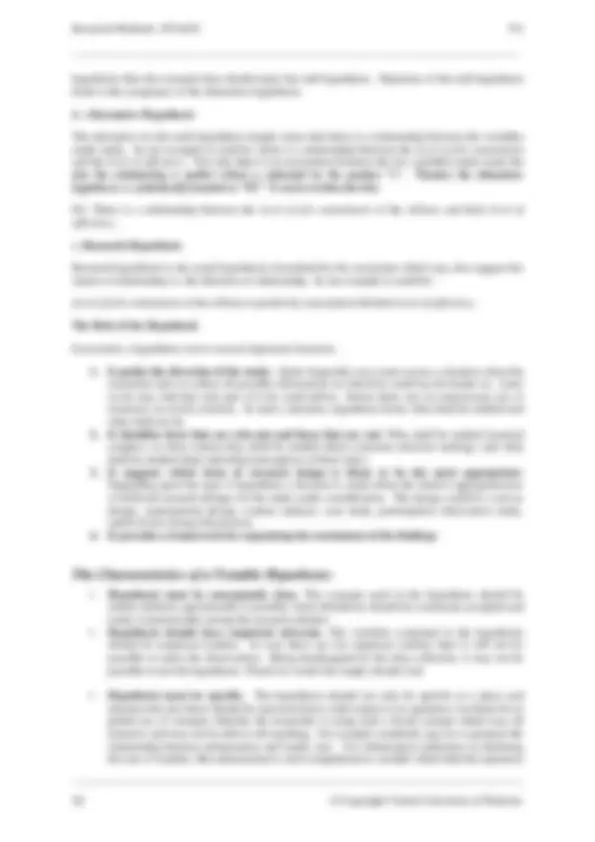
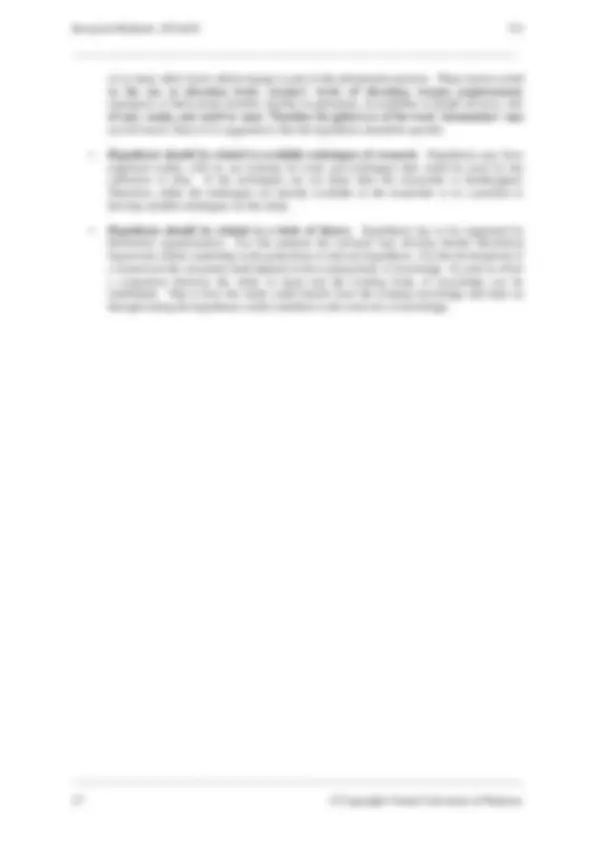
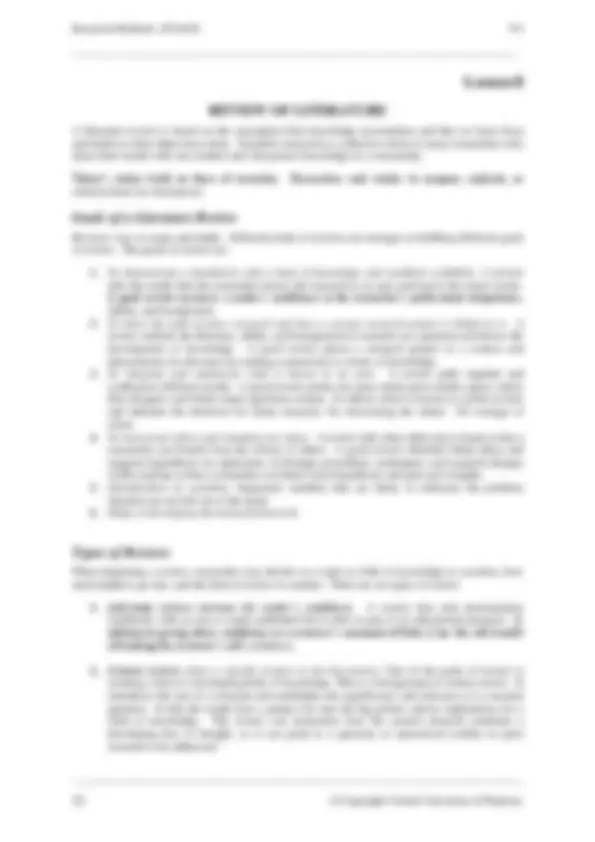
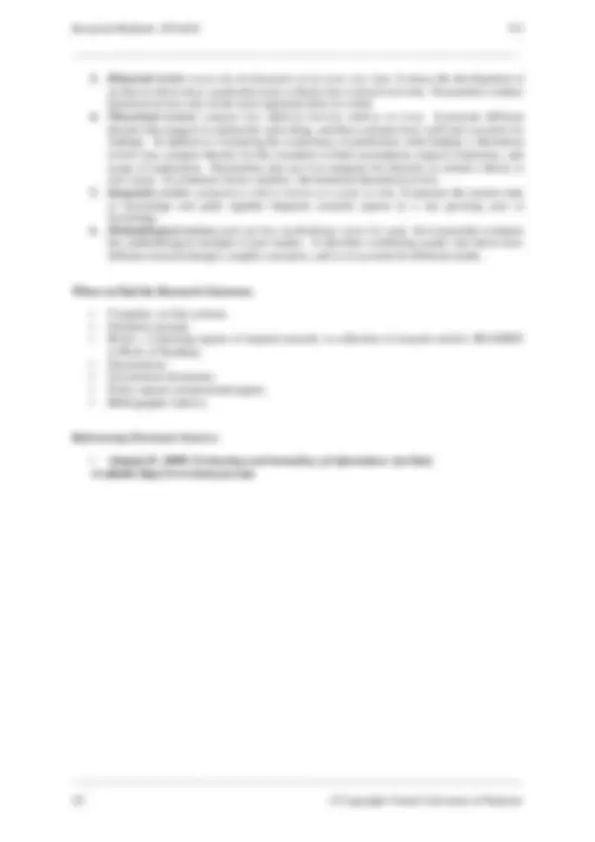
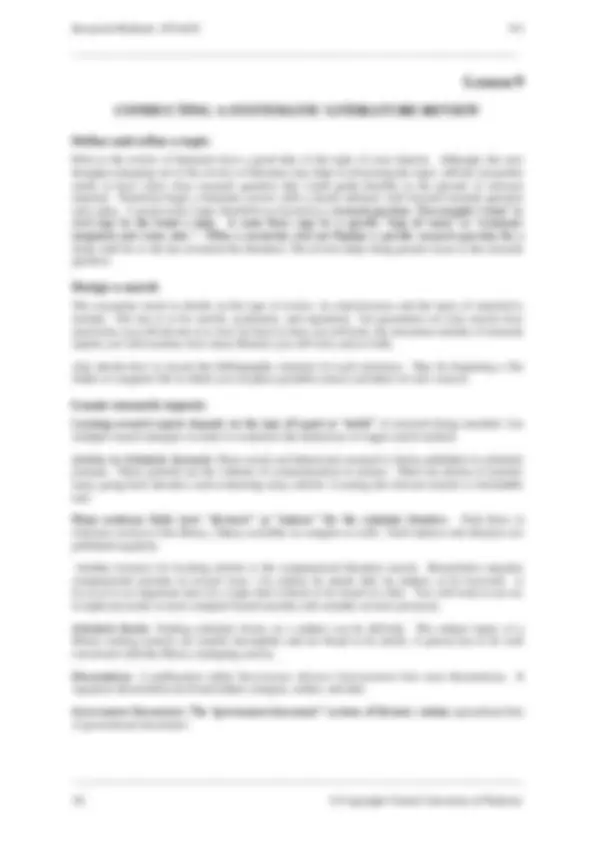
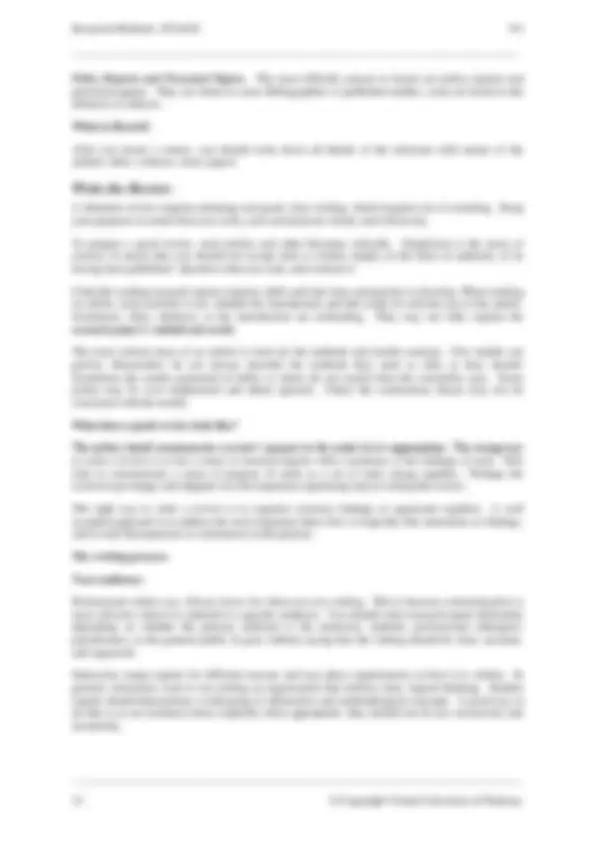
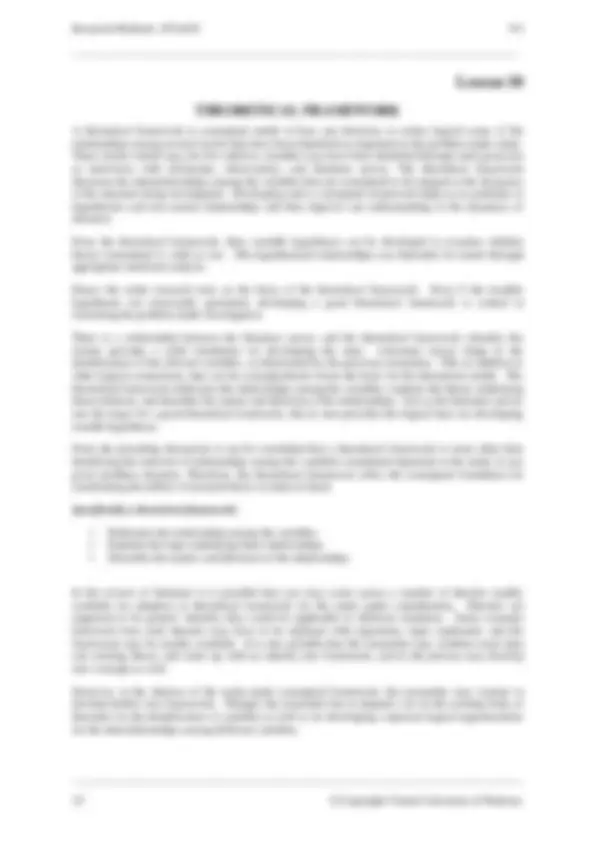
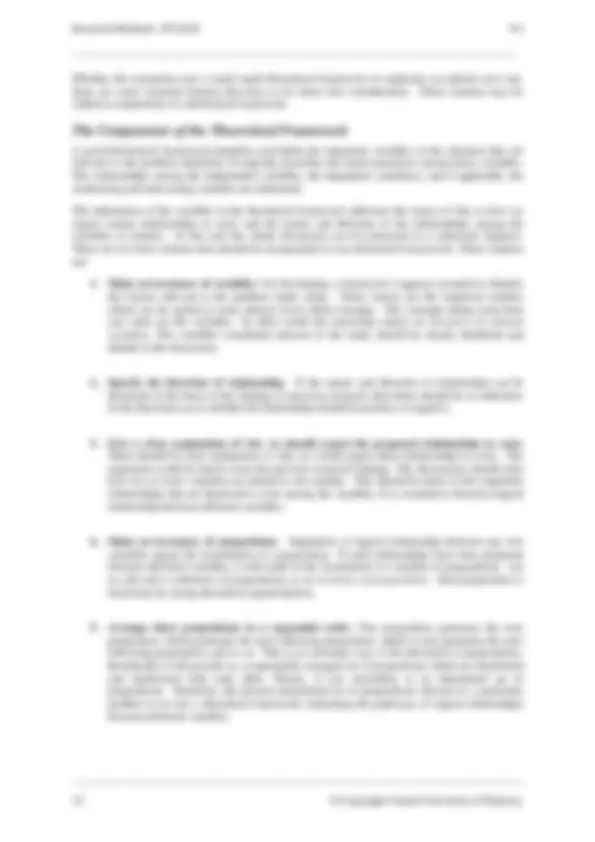
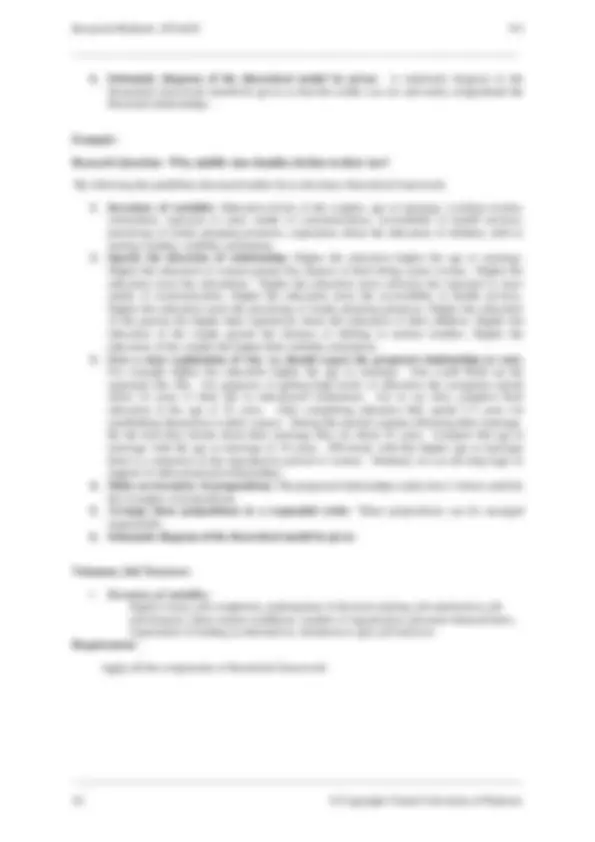
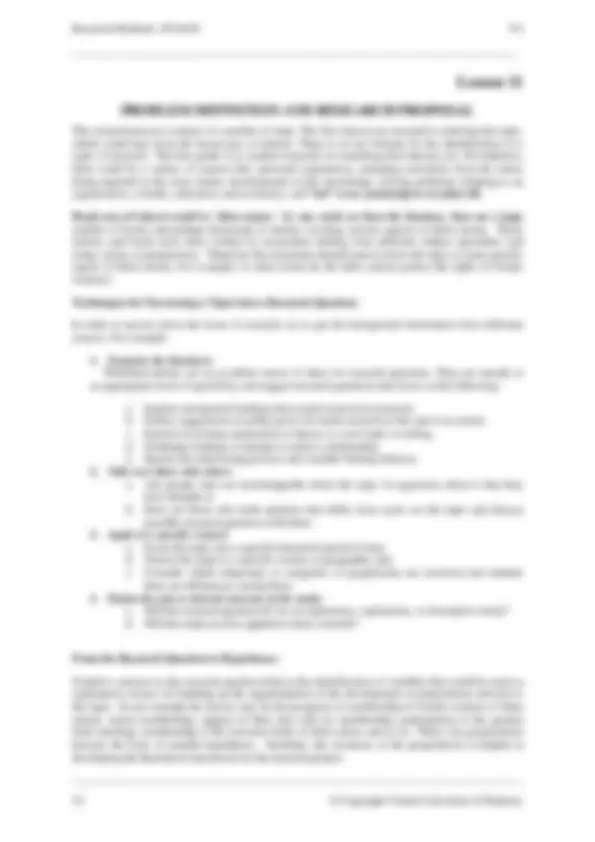
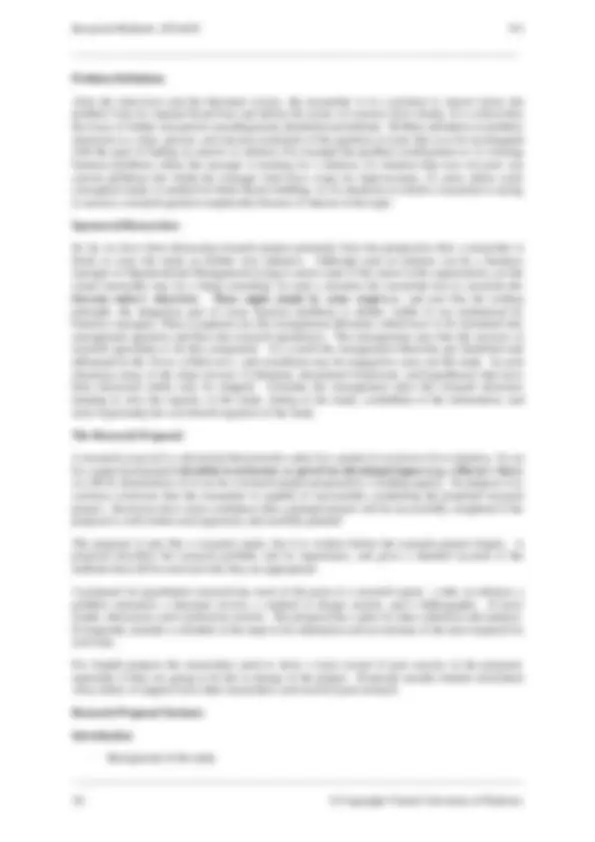
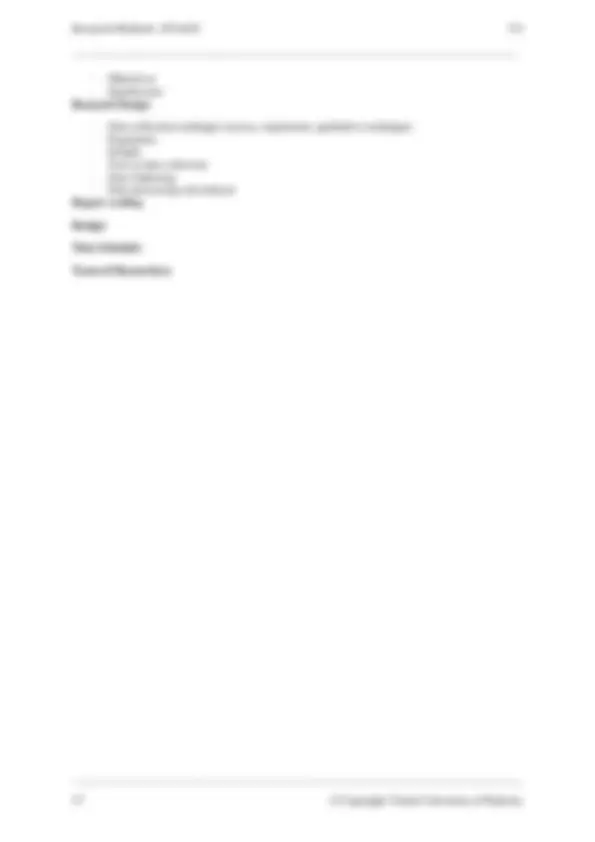
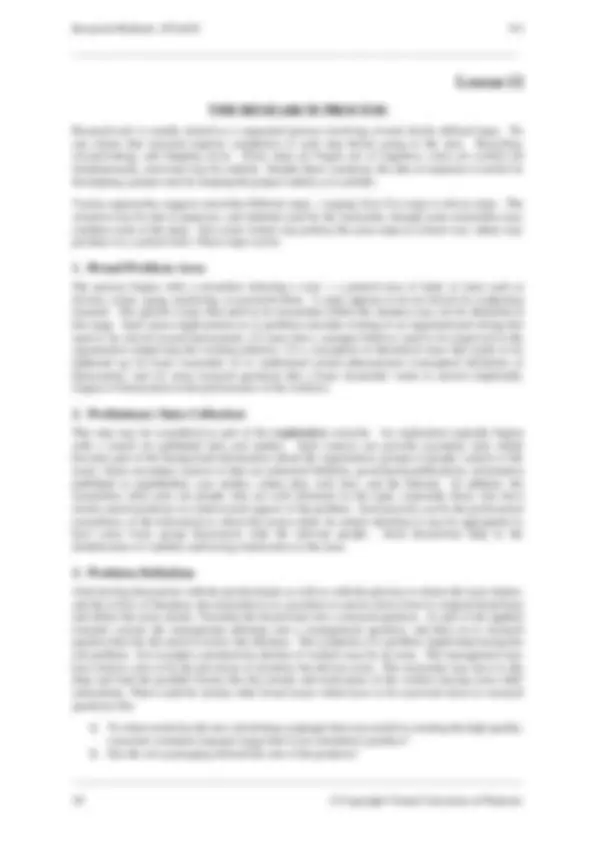
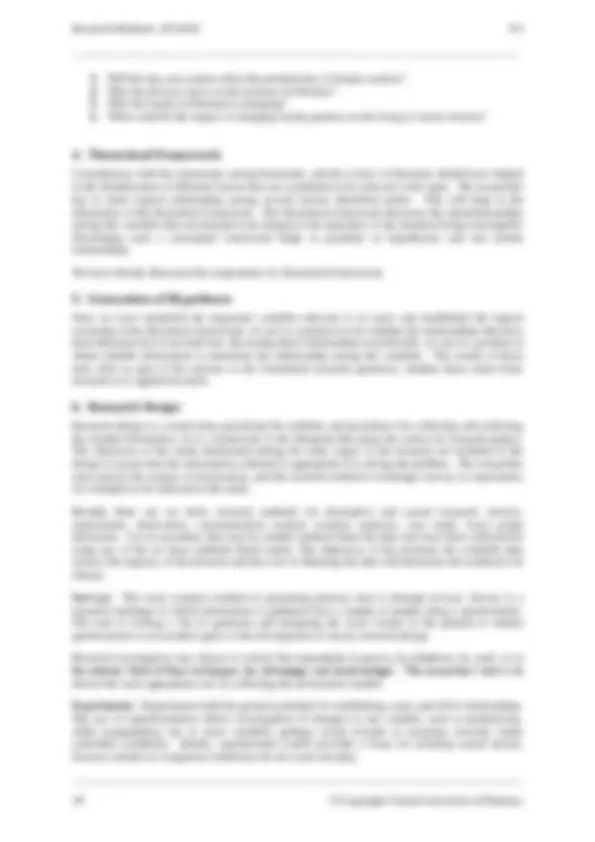
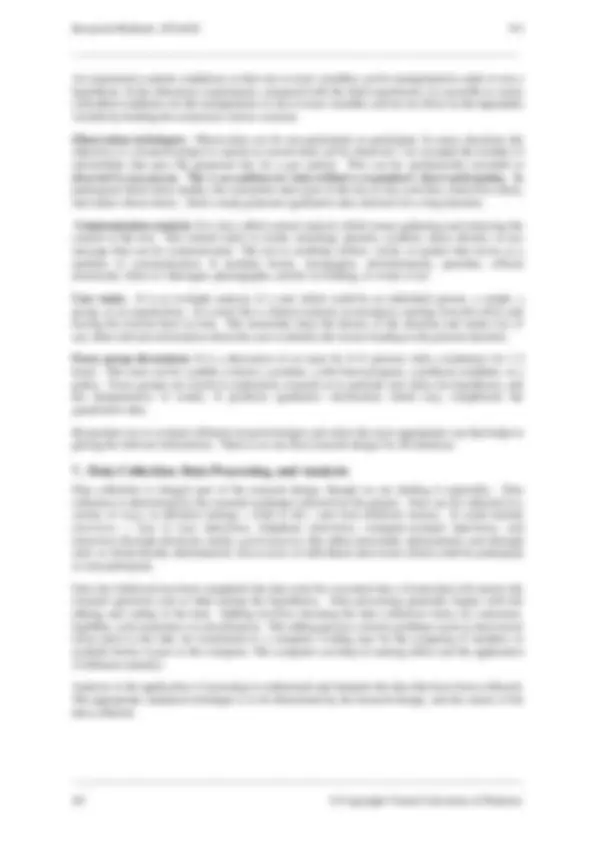
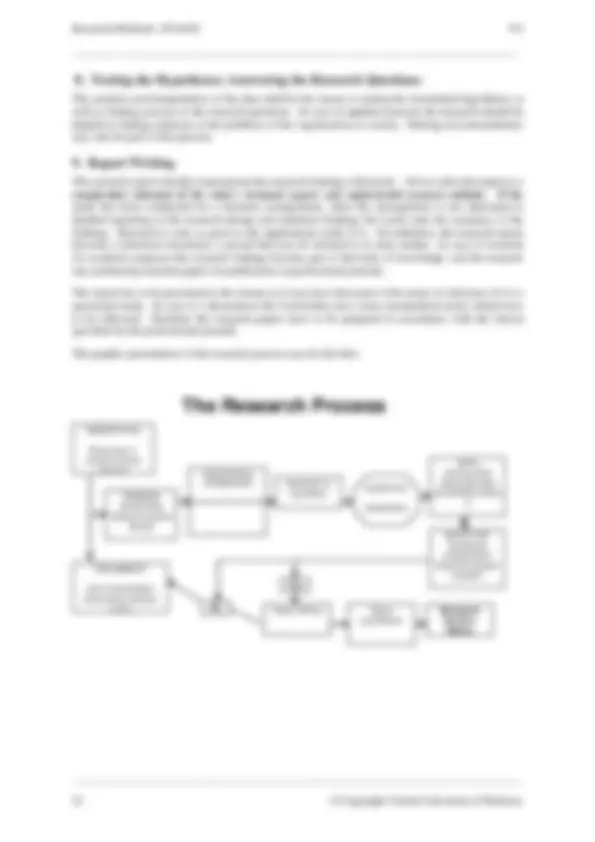
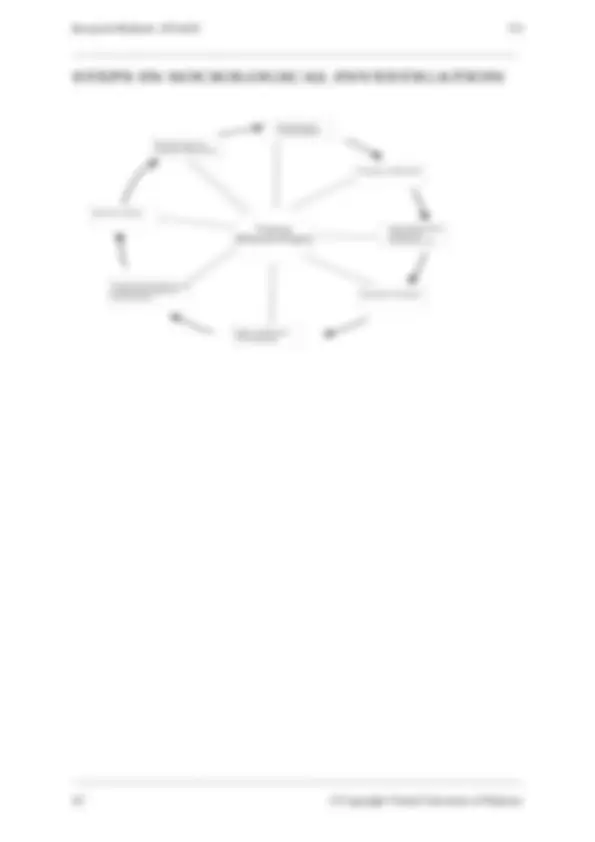
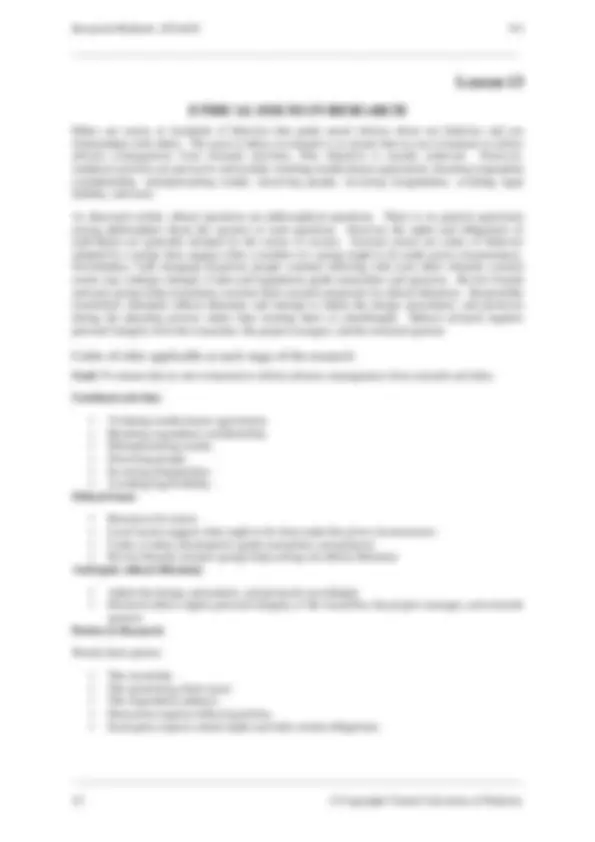
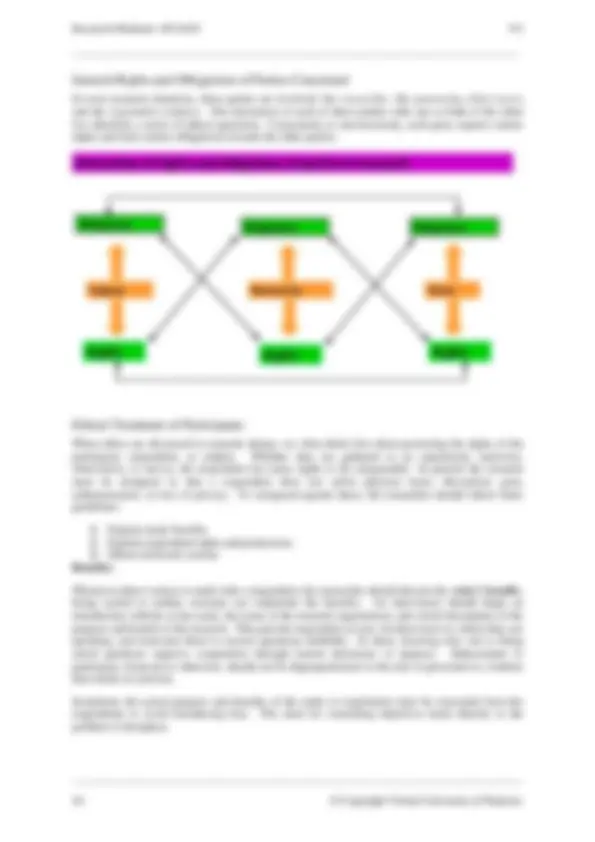
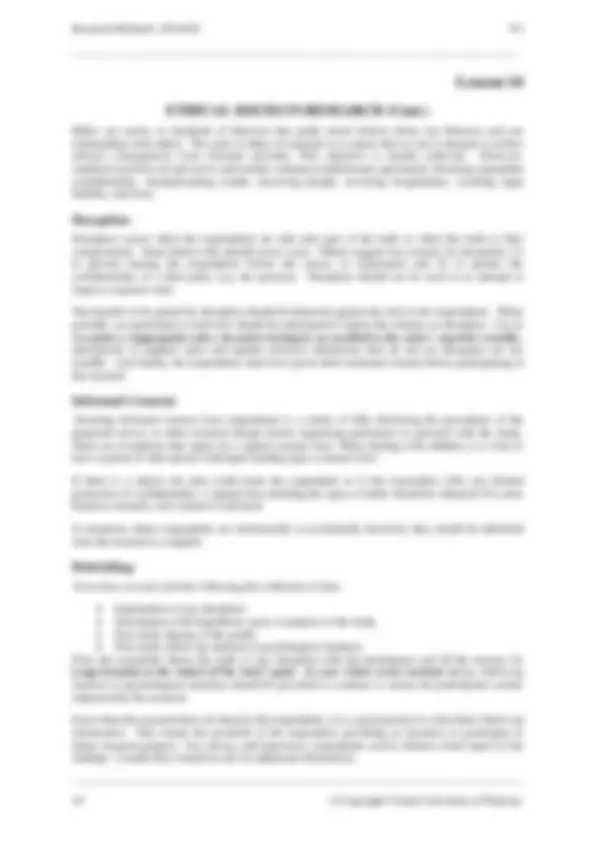
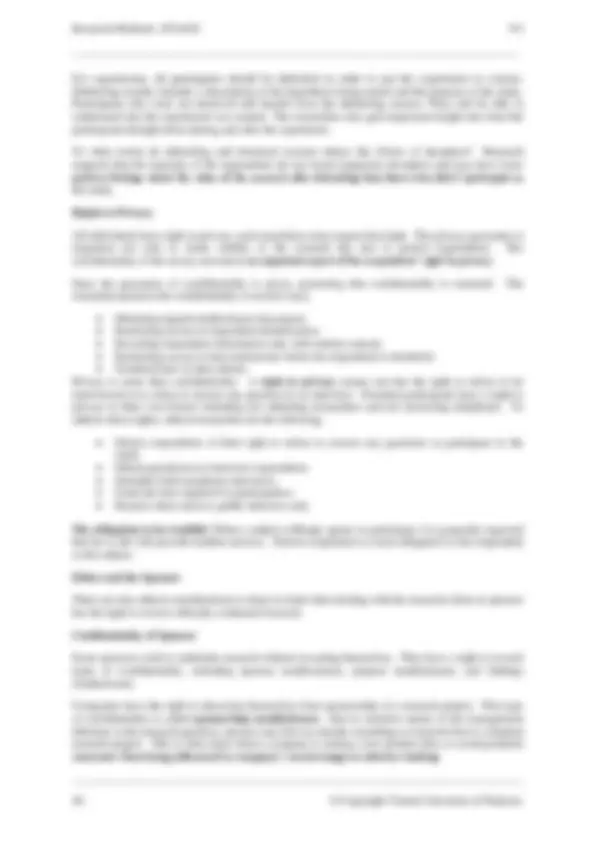
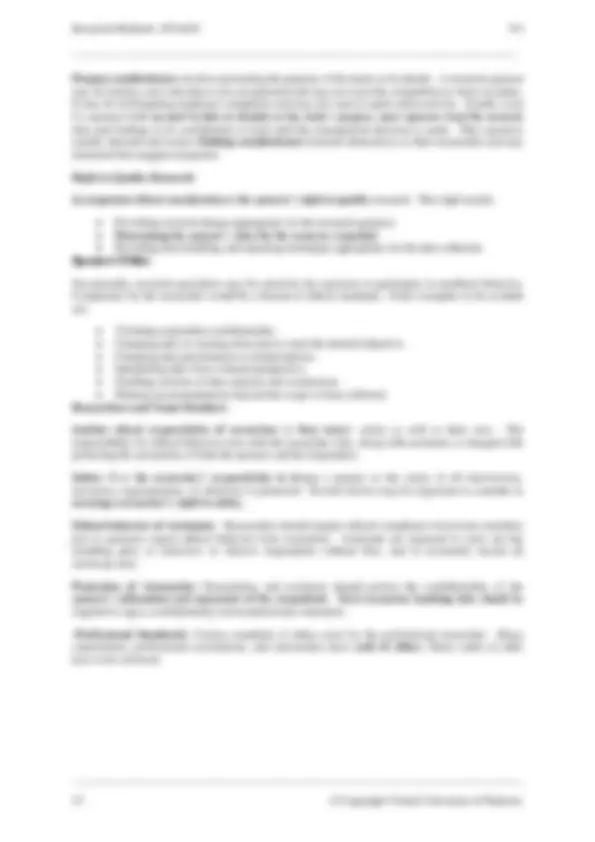
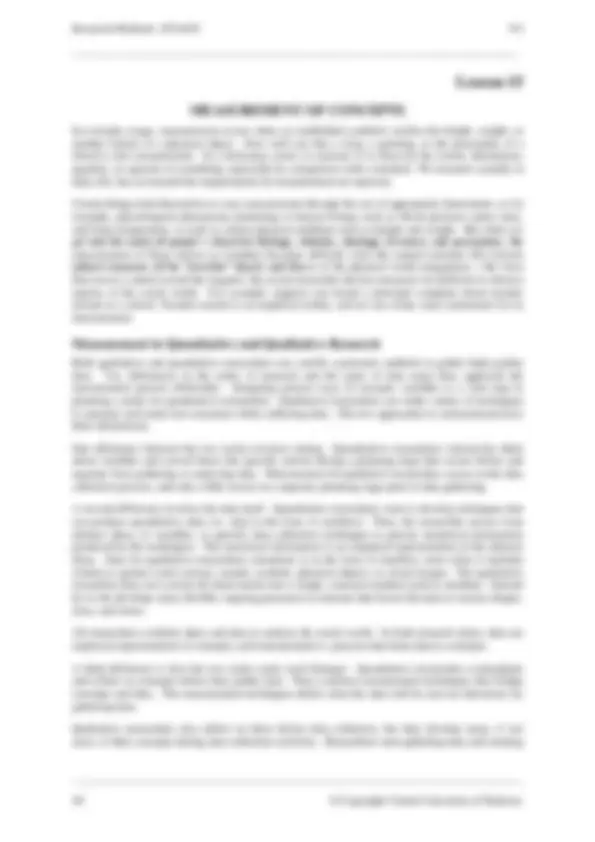
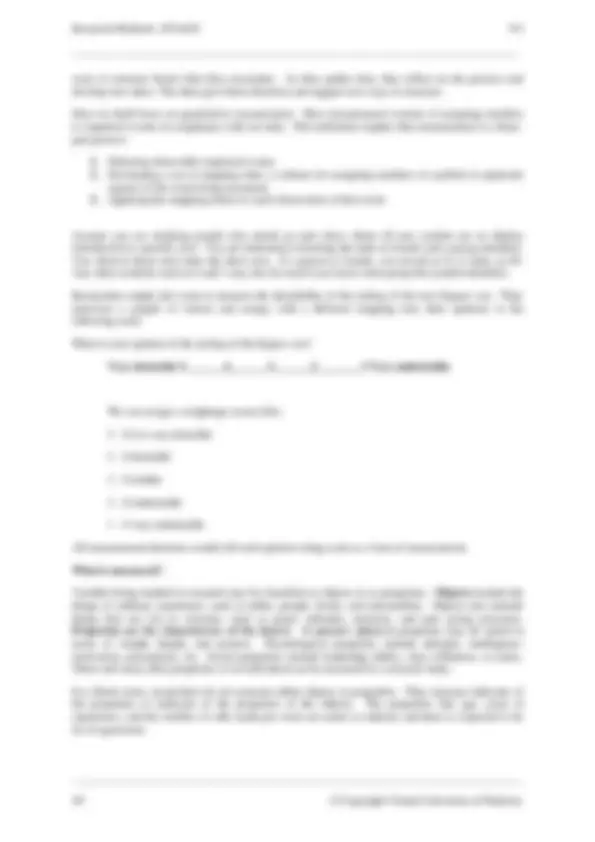
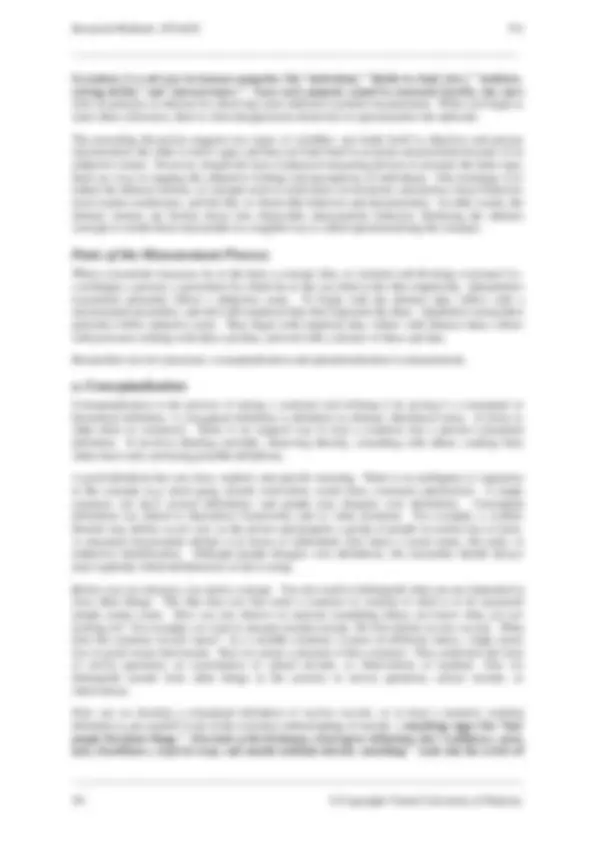
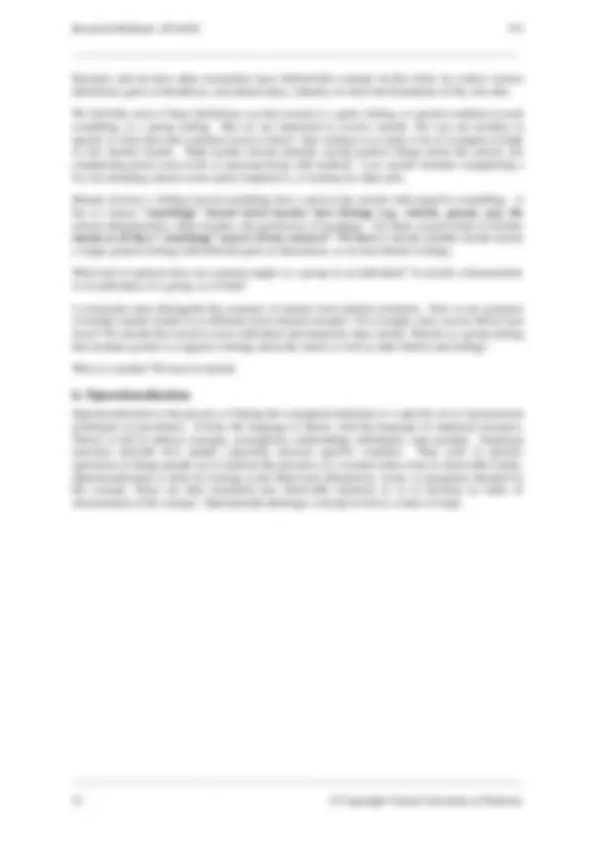
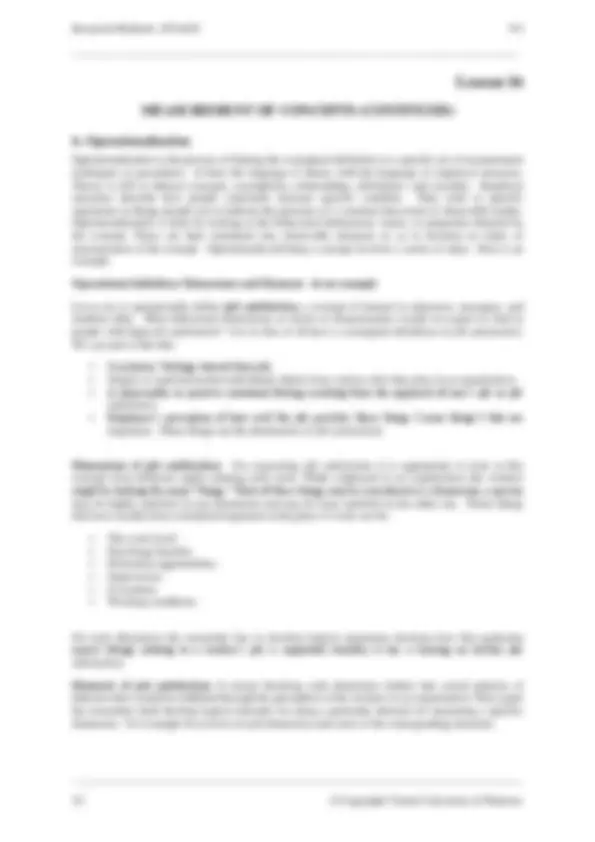
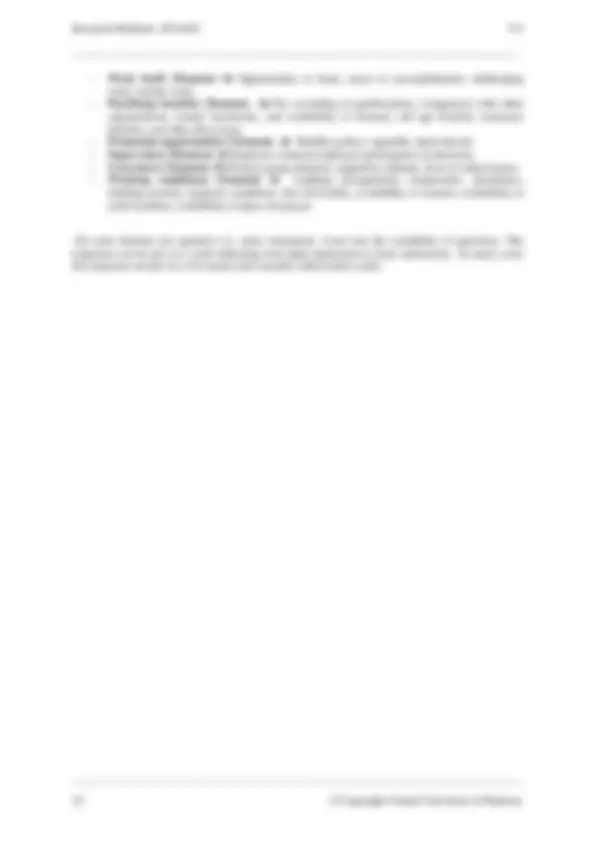
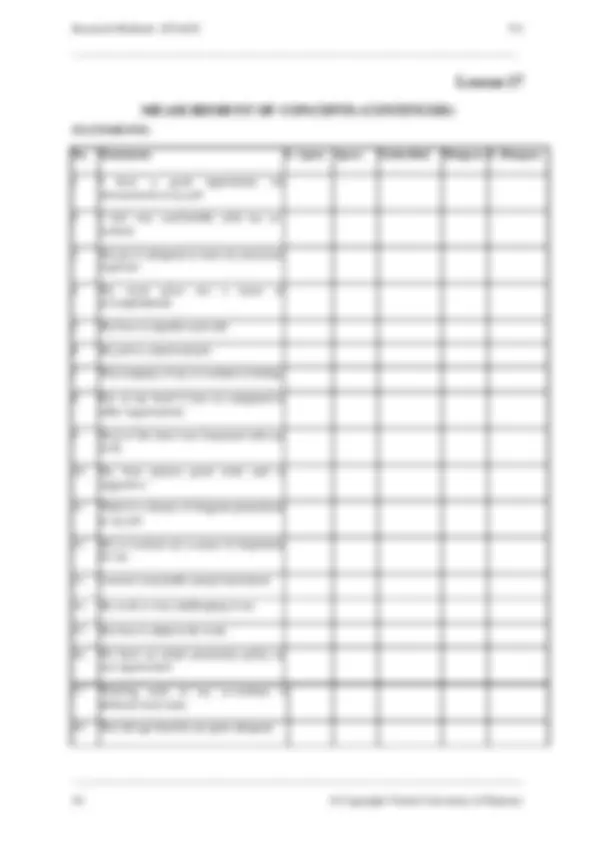
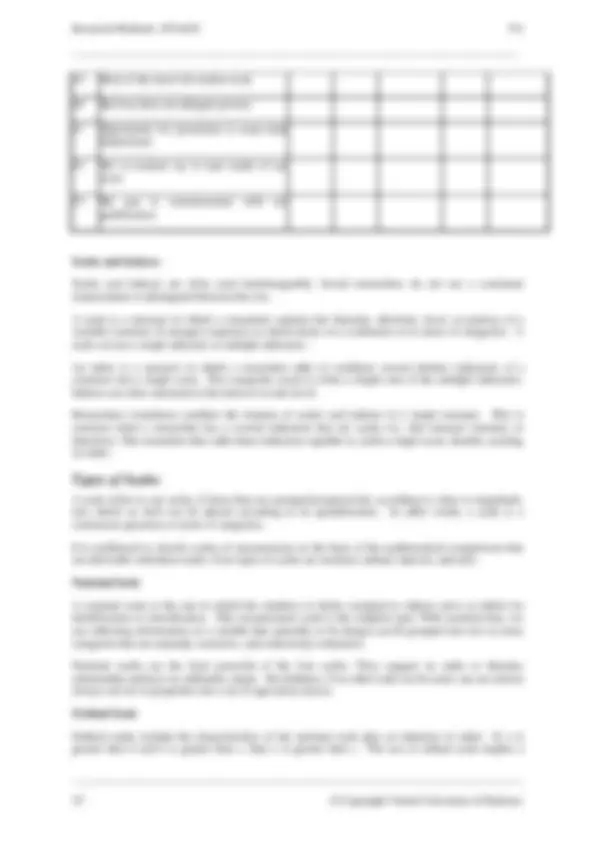
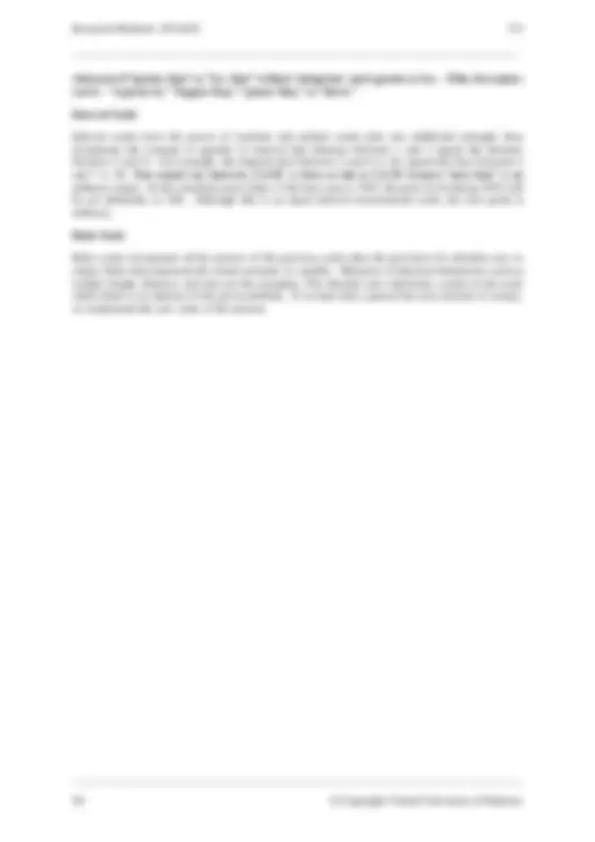
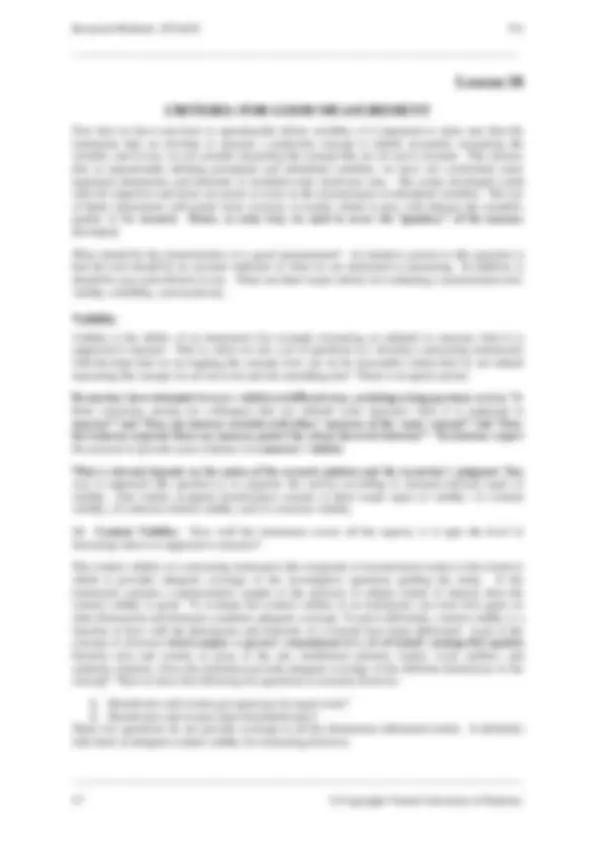
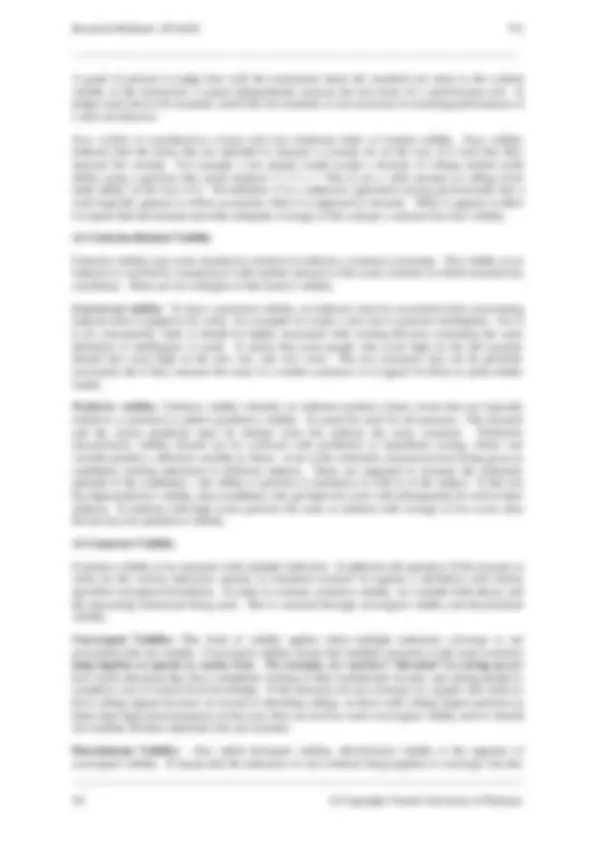
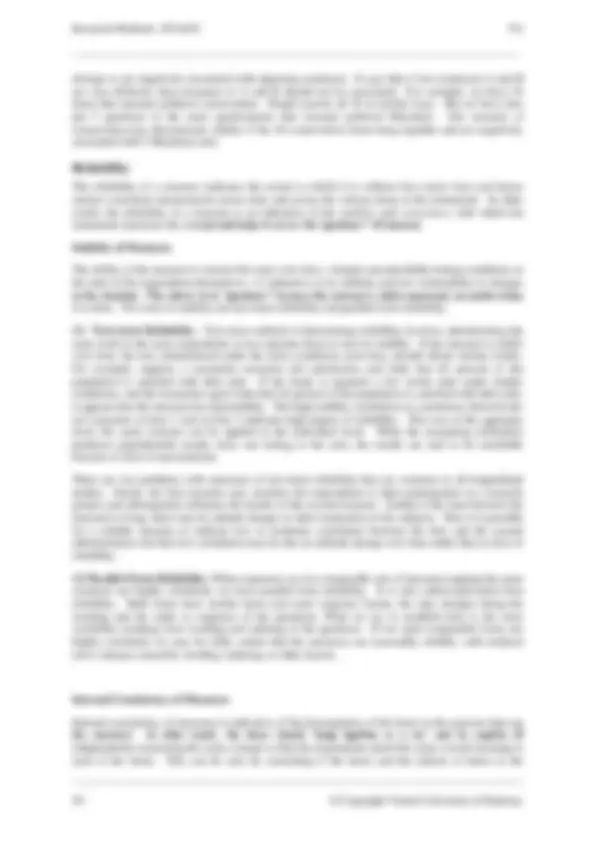
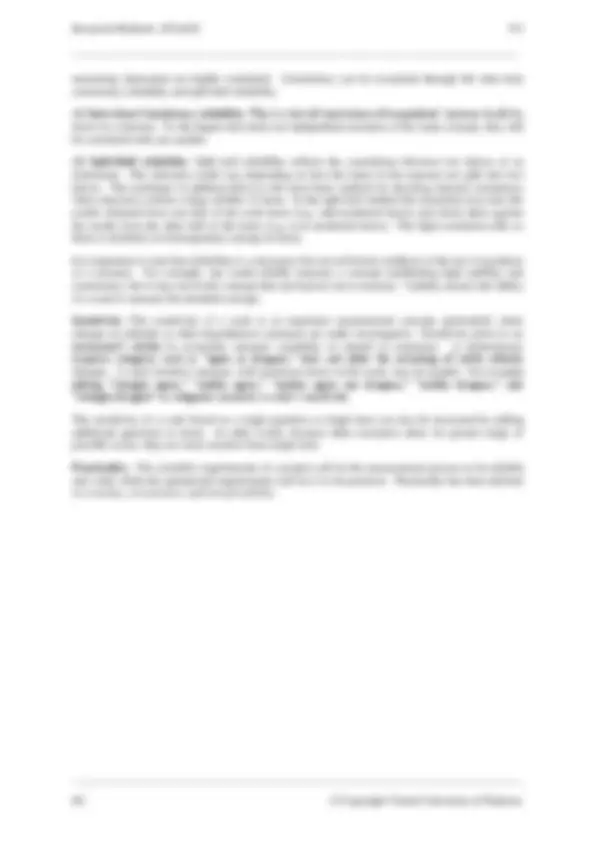
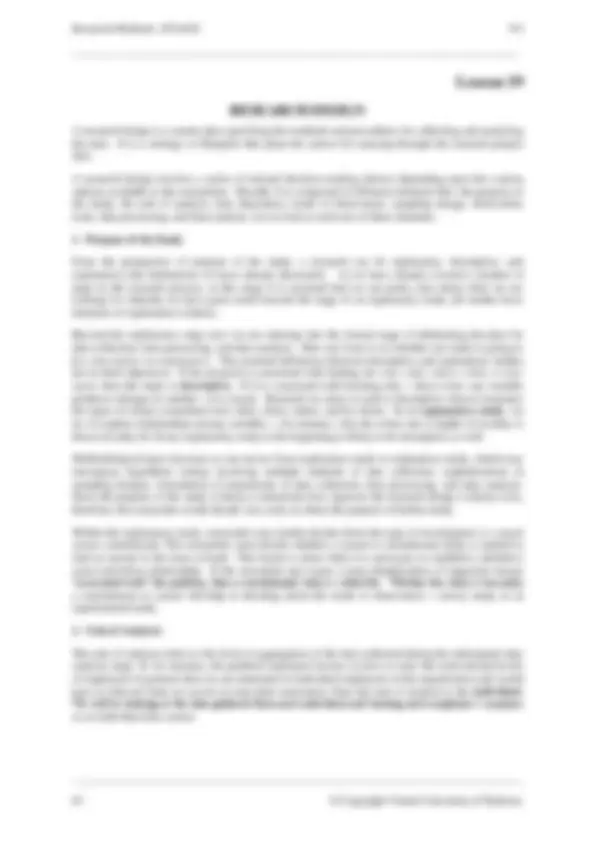
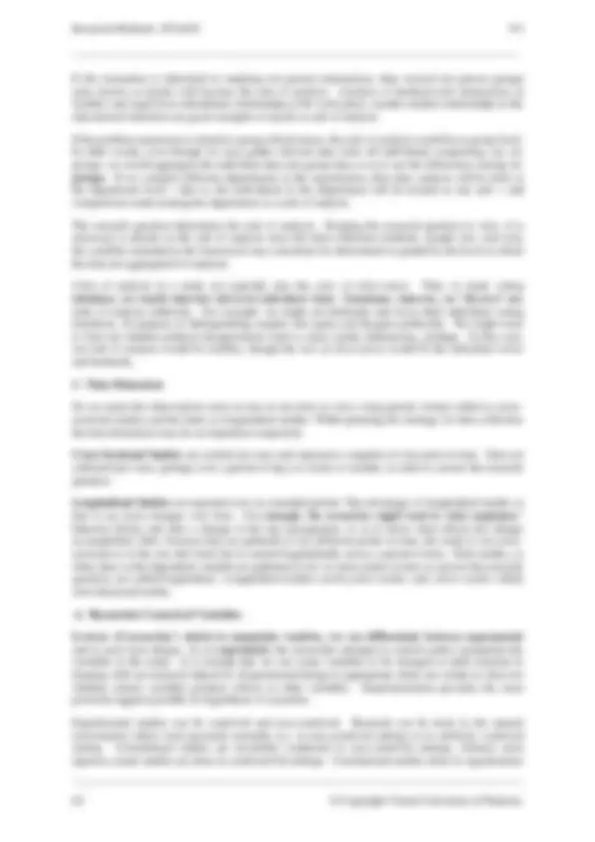
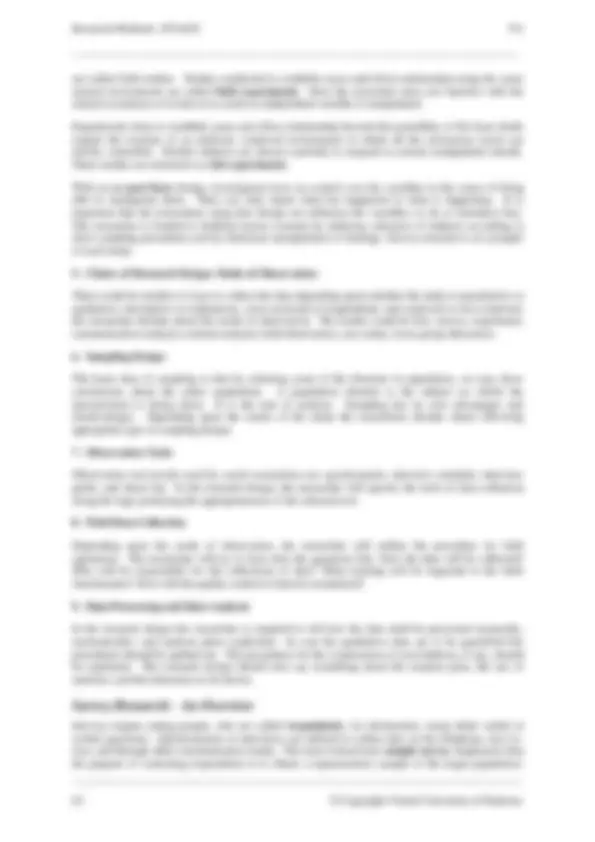
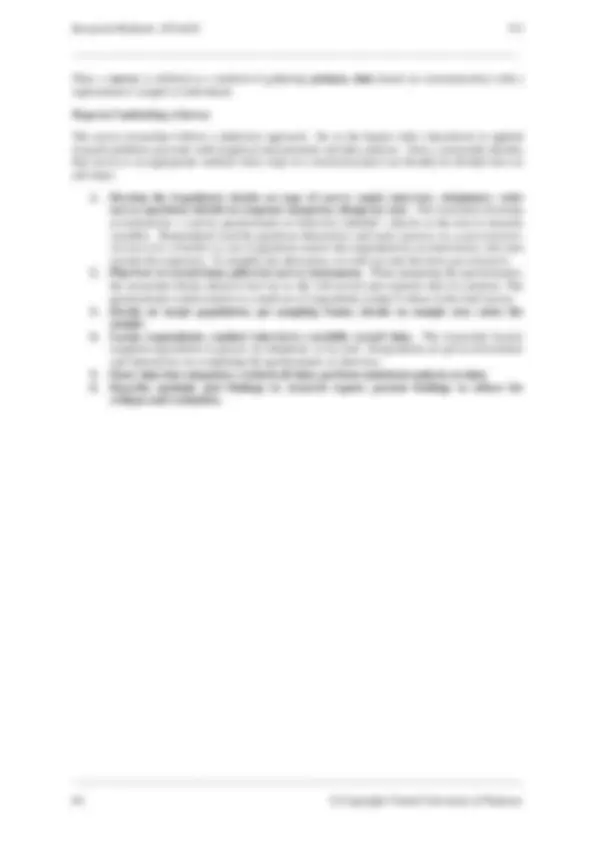
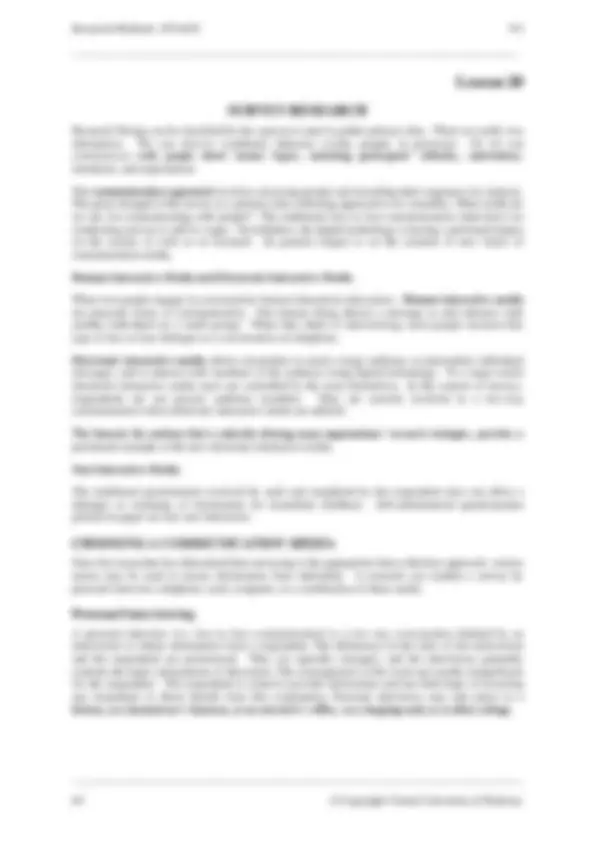
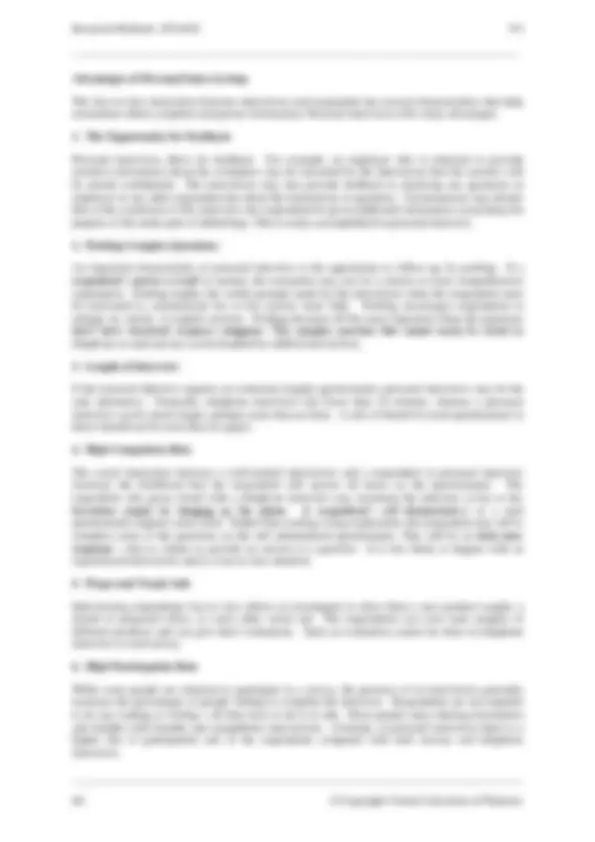
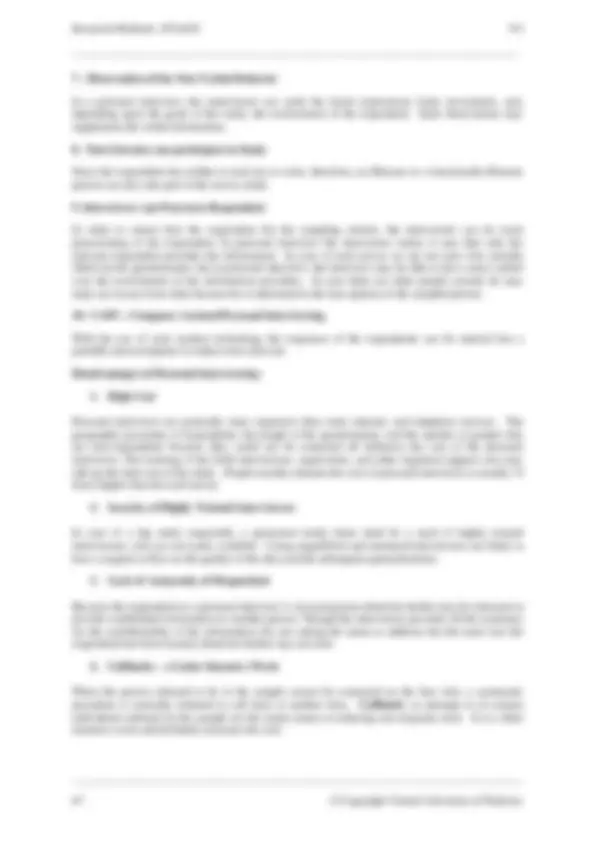
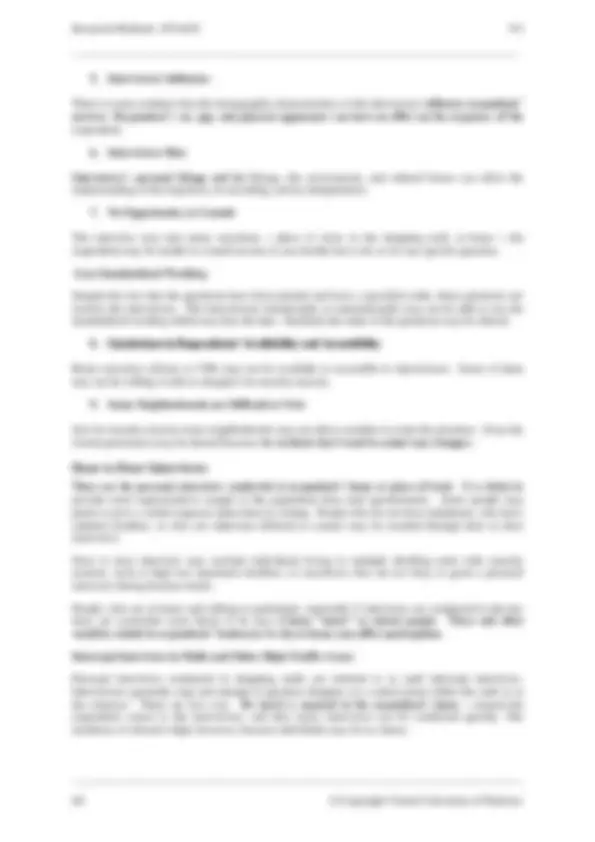
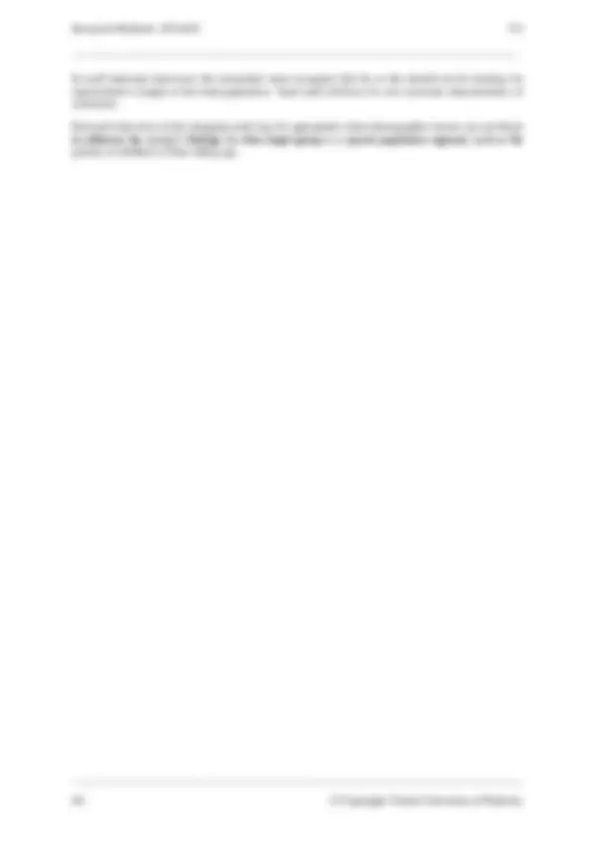
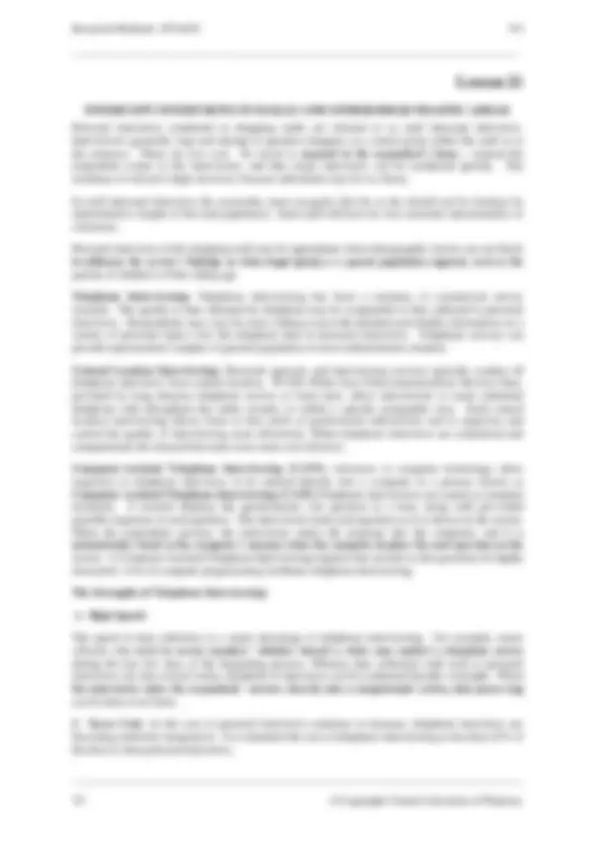
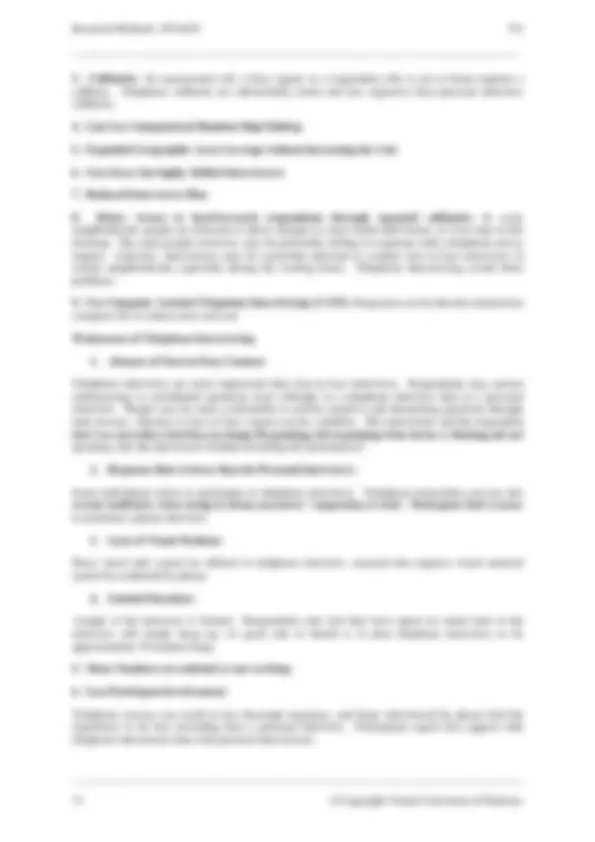
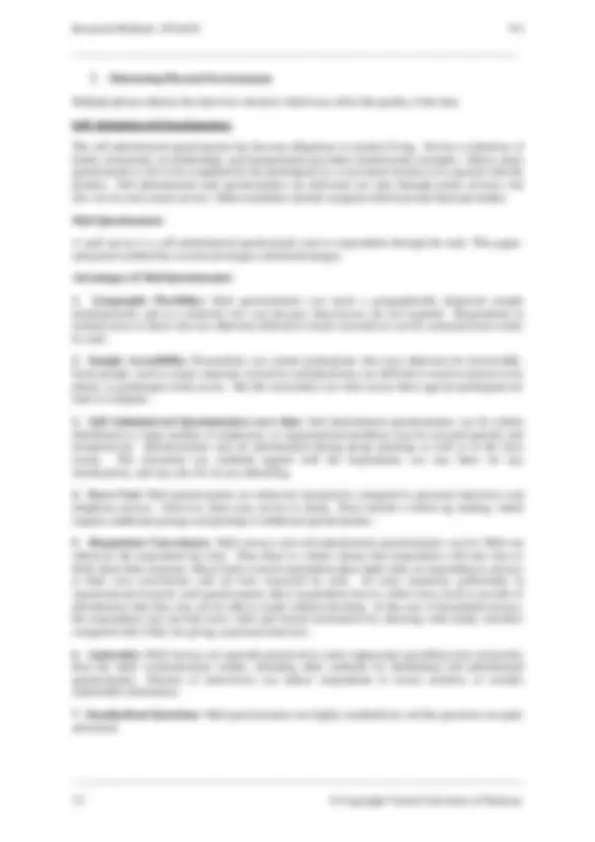
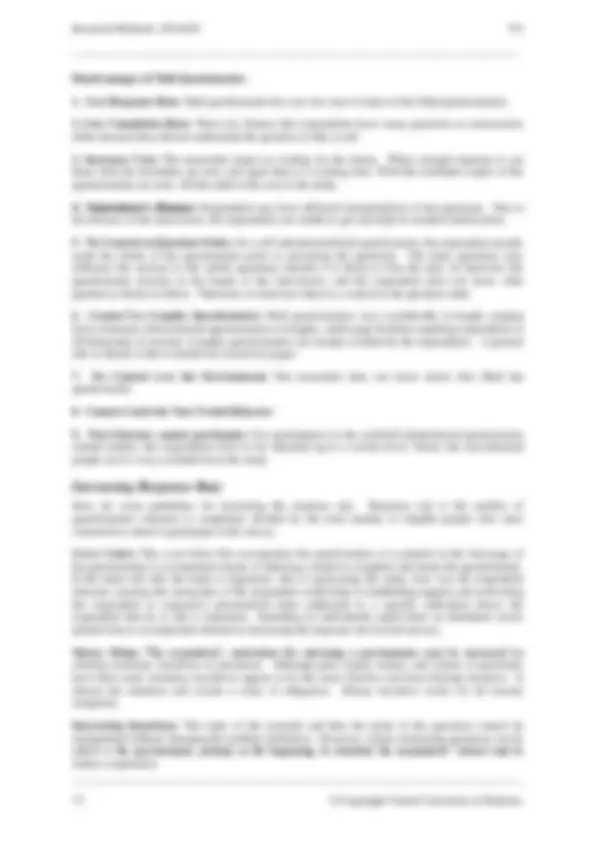
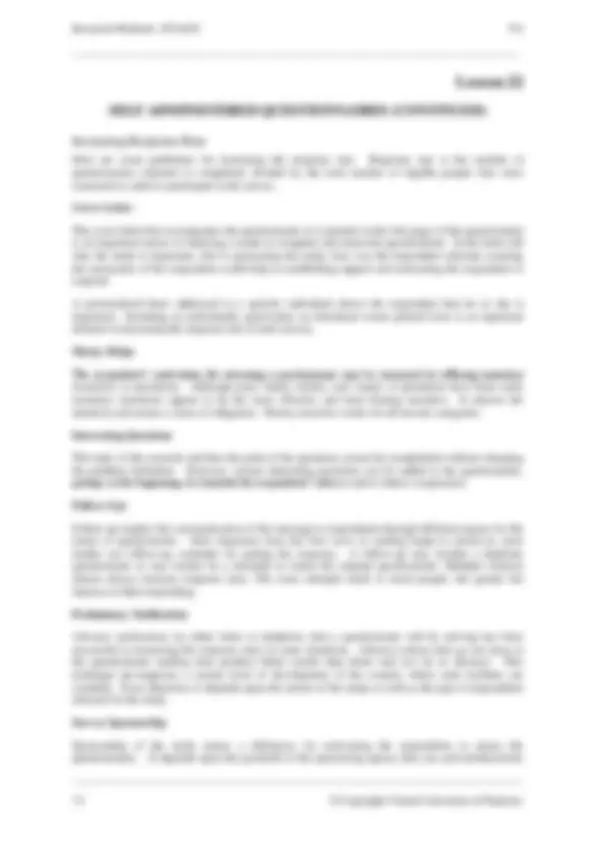
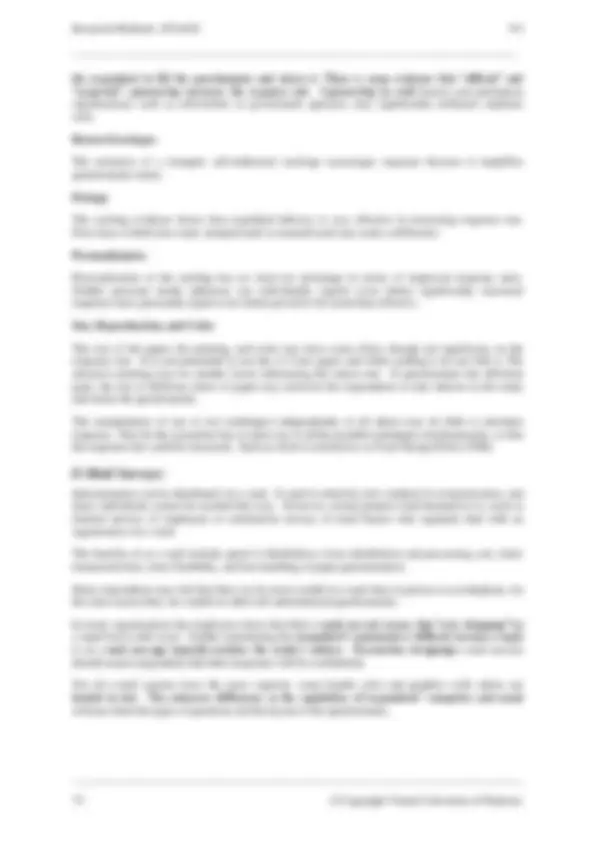
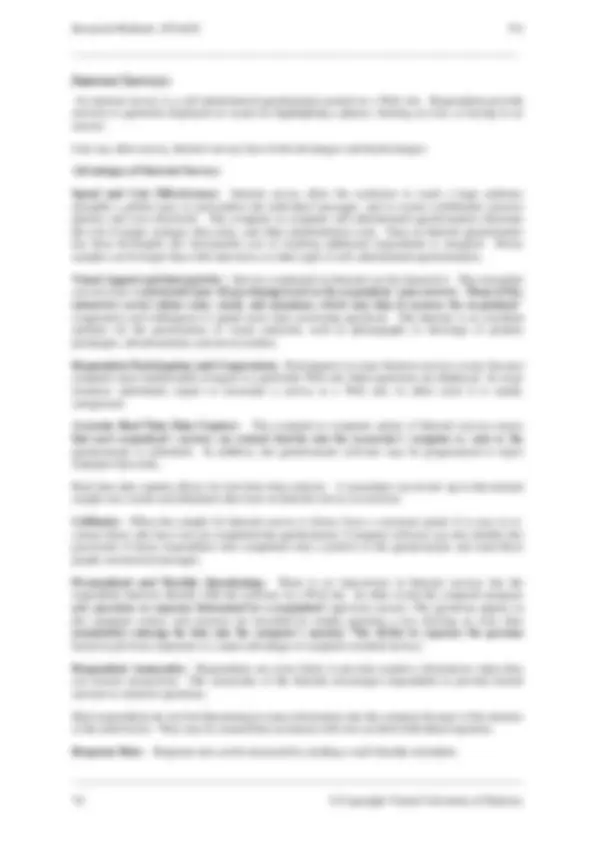
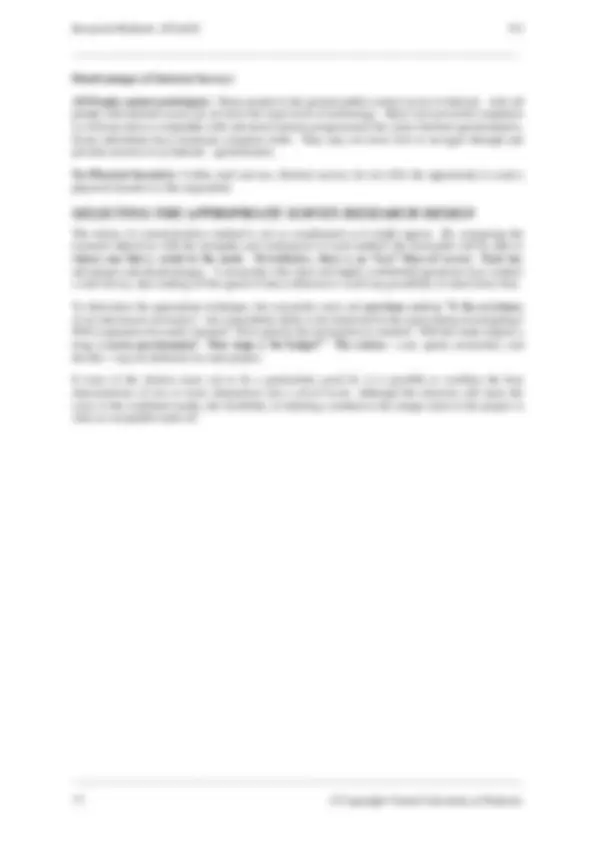
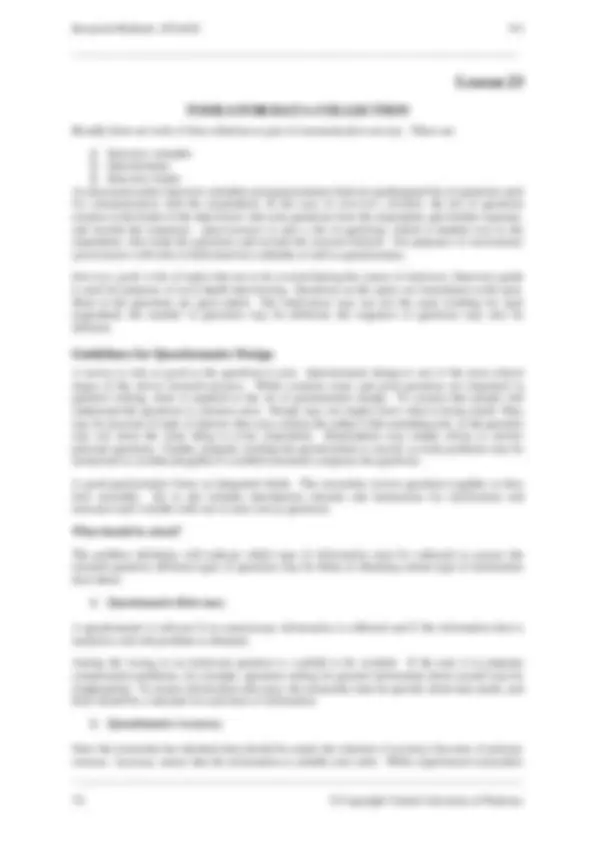
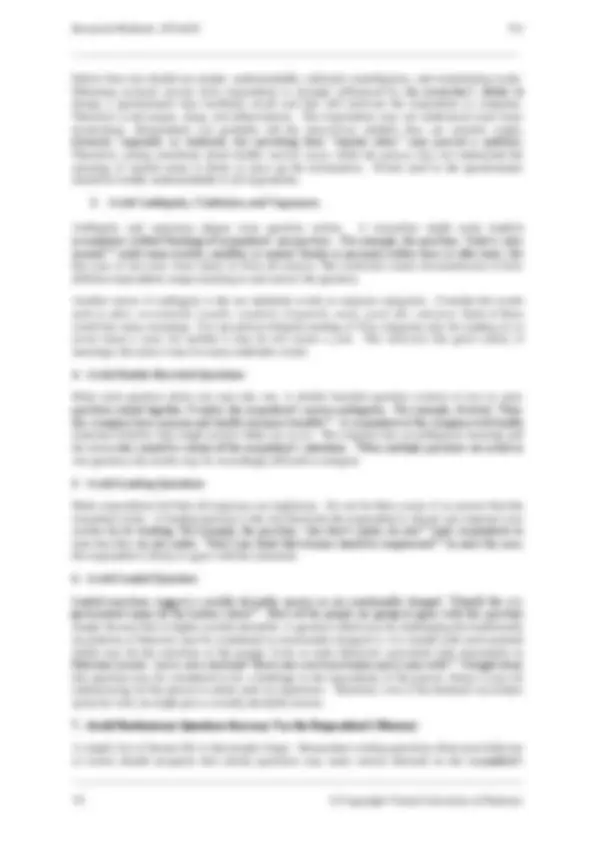
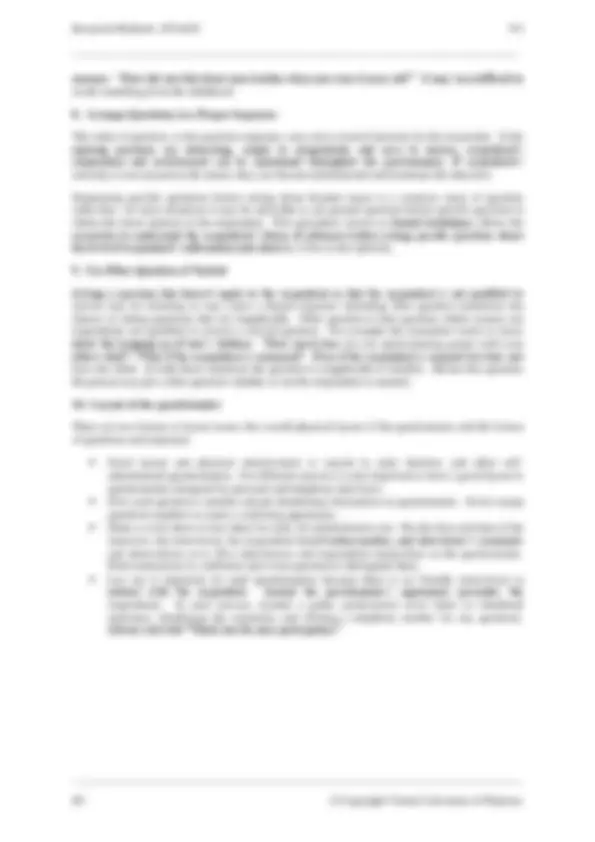
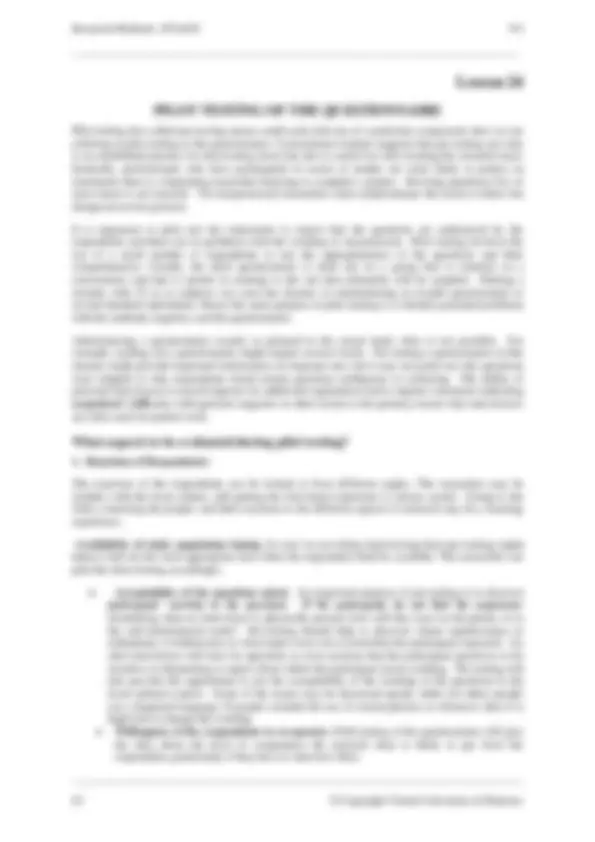
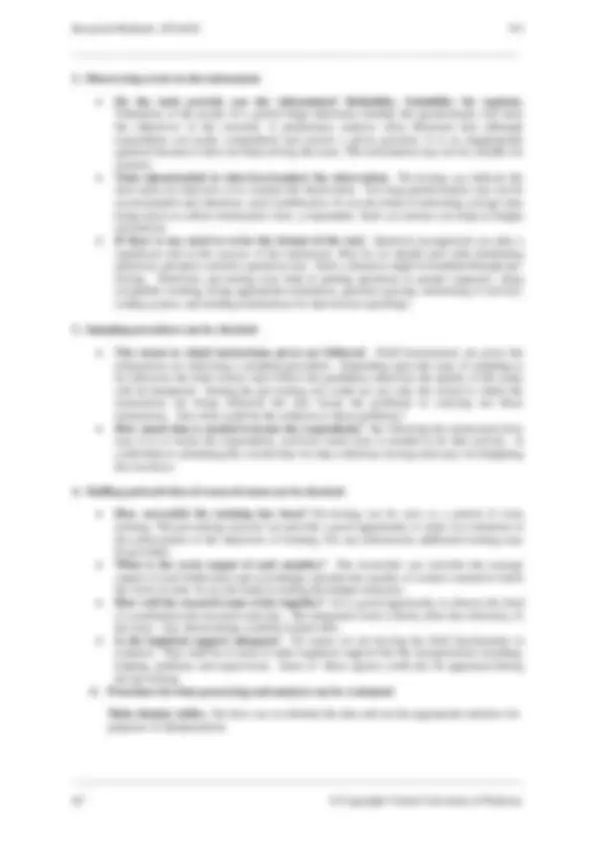
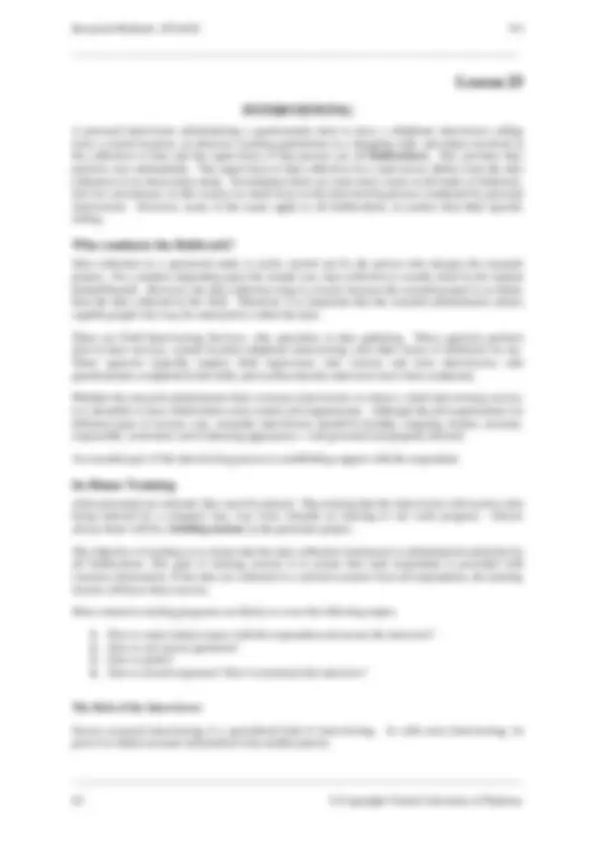
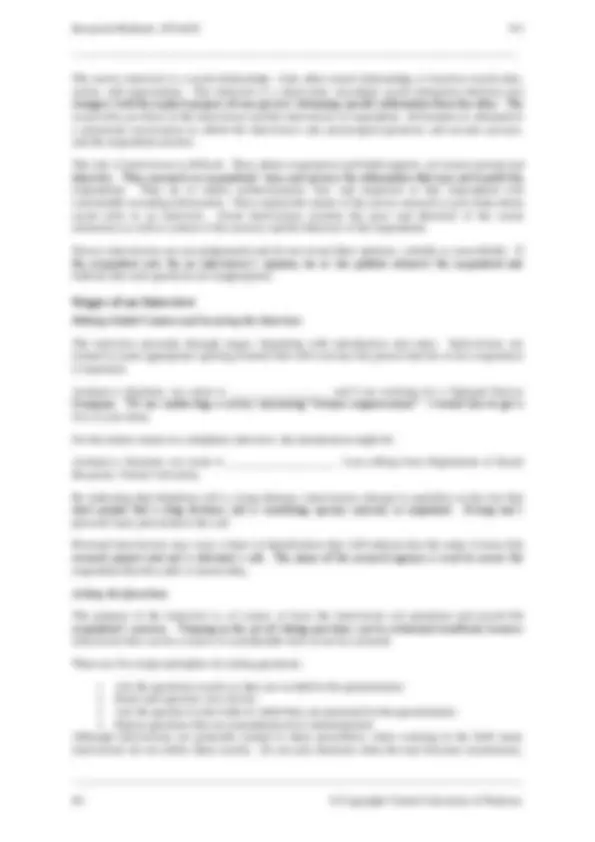
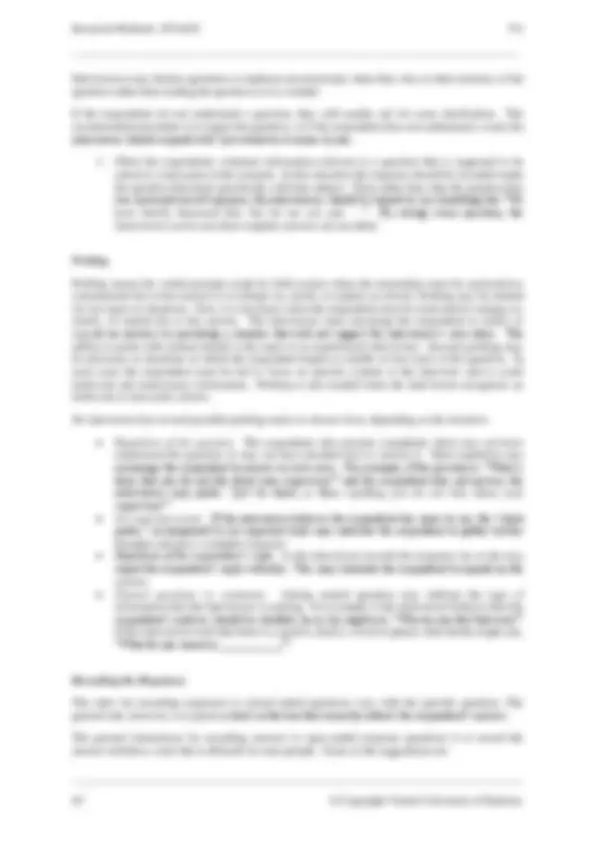
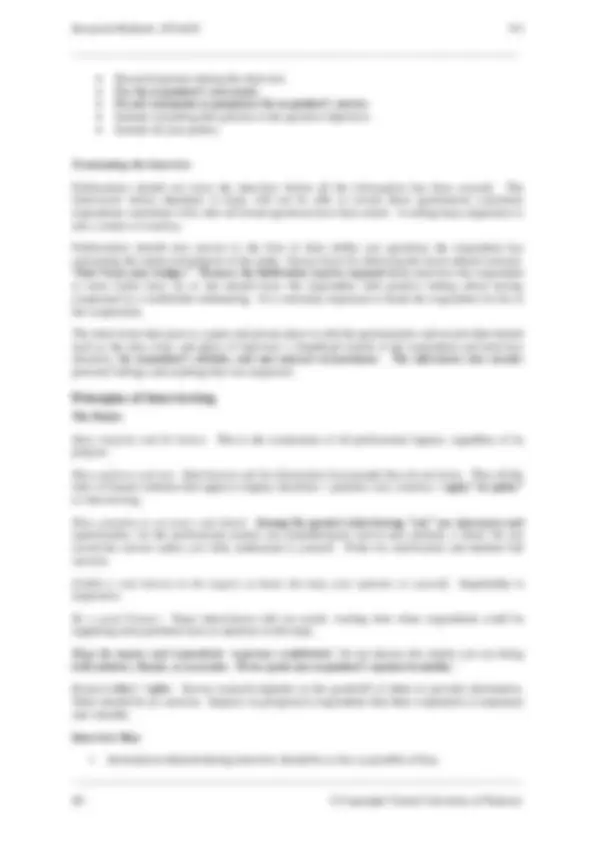
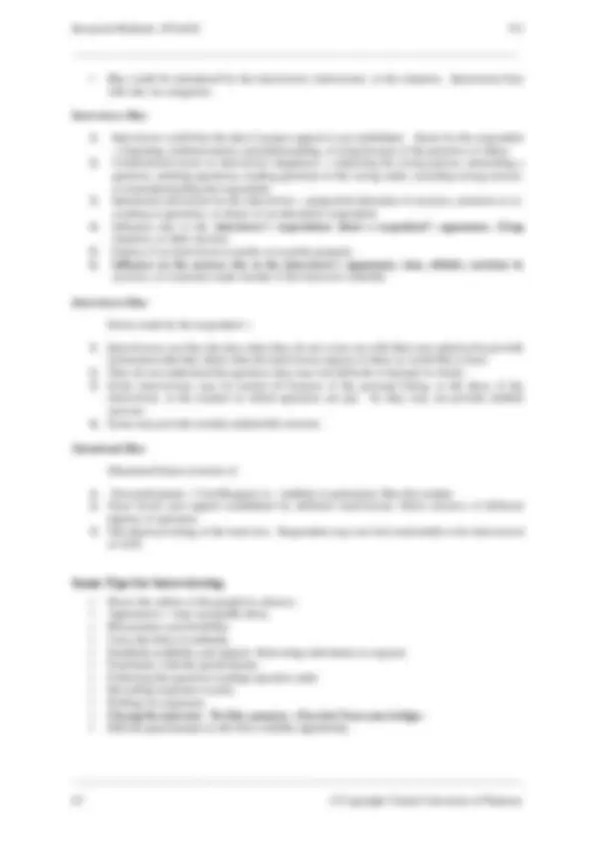
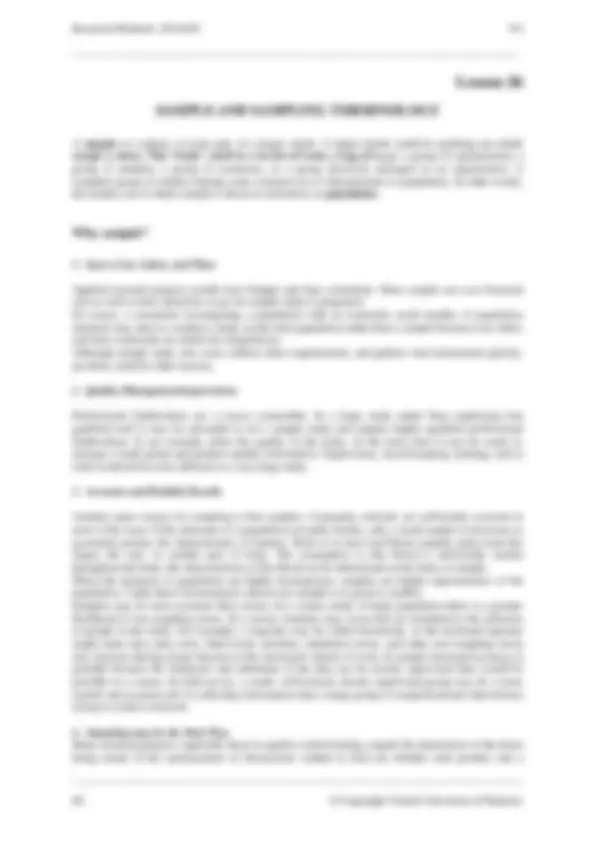
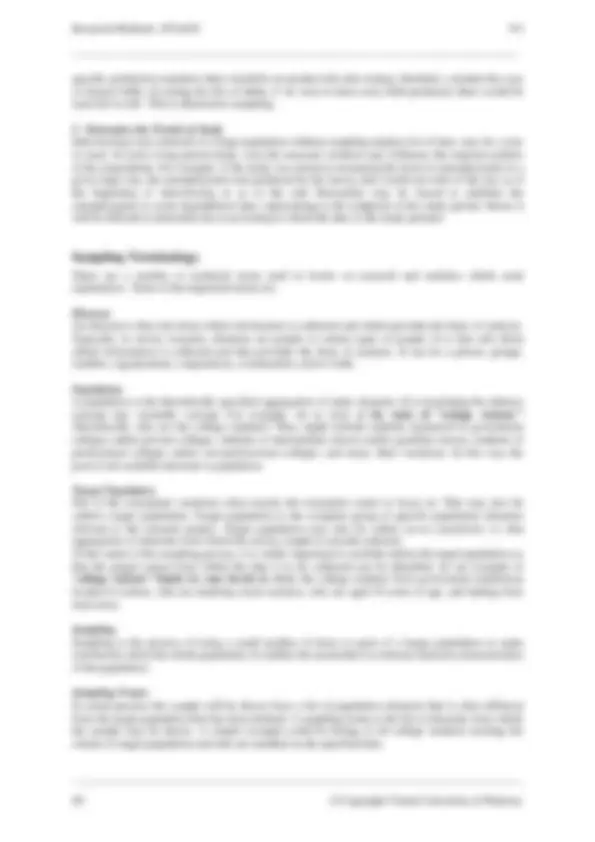


Study with the several resources on Docsity

Earn points by helping other students or get them with a premium plan


Prepare for your exams
Study with the several resources on Docsity

Earn points to download
Earn points by helping other students or get them with a premium plan
Community
Ask the community for help and clear up your study doubts
Discover the best universities in your country according to Docsity users
Free resources
Download our free guides on studying techniques, anxiety management strategies, and thesis advice from Docsity tutors
An overview of social research, its purposes, and various research methods. Topics include applied research, descriptive research, basic research, evaluation research, cross-sectional research, and long-term research. The document also discusses the importance of research ethics and the role of research in different fields. Students and researchers will find this information useful for understanding the research process and selecting appropriate research methods.
Typology: Assignments
1 / 198

This page cannot be seen from the preview
Don't miss anything!





























































































The researchers try to make use of their findings for generating theories and models that could be used for understanding human behavior and the functioning of different structures both at the micro (organizational) and macro (societal) level.
Therefore, research may be considered as an organized, systematic, data based, critical, objective, scientific inquiry or investigation into a specific problem, undertaken with the purpose of finding answers or solutions to it. In this way research provides the needed information that guides the planners to make informed decisions to successfully deal with the problems. The information provided could be the result of a careful analysis of data gathered first hand or of the data that are already available with an organization..
The value of research for policy makers, planners, business managers, and other stakeholders is that it reduces uncertainty by providing information that improves the decision-making process. The decision making process associated with the development and implementation of a strategy involves four interrelated stages:
1. Identifying problems or opportunities; 2. Diagnosing and assessing problems or opportunities; 3. Selecting and implementing a course of action; and 4. Evaluating the course of action.
Identifying problems and solutions to the same problems is in fact applying the research findings to overcome an undesirable situation. Initially a problem may appear to be simply a „tip of the iceberg‟ but the study by a professional might help locating the magnitude of the issue as well as its solutions. Such research is usually referred to as applied research, which shall be discussed in detail in the coming lectures.
By now we know that the researchers have to develop methodologies for carrying out the research. These methodologies are for the collection of data, data processing and data analysis. For the new researchers these methodologies are already available, most of the researchers just use these. Nevertheless, there is always a scope for improvement and certainly new methodologies are developed. Also we try to borrow methodologies from sister subjects.
Managers and administrators with knowledge of research have an advantage over those who are without. Though a manager/administrator him/herself may not be doing any major research yet he/she will have to understand, predict, and control events that are dysfunctional to the organization.
For example , a new product developed may not be “taking off,” or a financial investment may not be “paying off” as anticipated. Such disturbing phenomena have to be understood and explained. Unless this is done, it will not be possible to predict the future of that product or the prospects of that investment, and how future catastrophic outcomes can be controlled. A grasp of research methods will enable managers/administrators to understand, predict, and control their environment.
Managers may not be doing the research themselves, in fact they could hire the services of professionals, and still they should be well conversant with research methodologies. The manager who is knowledgeable about research can interact effectively with outside researchers or consultants. Knowledge about research processes, design, and interpretation of data also helps managers to become discriminating recipients of the research findings presented, and to determine whether or not the recommended solution are appropriate for implementation.
We are surrounded by research
For the understanding of the professional works, incorporation of the new findings in the practical situations, and for the implementation of the recommendations in policy/planning, the managers have
to be well conversant with researchers. Many of you may be preparing yourselves for such managerial positions, I am sure training in research methodology will certainly be helpful in your career.
others. We will place more faith and credence in those findings and conclusions if similar findings emerge on the basis of data collected by other researchers using the same methods. To the extent that it does happen (i.e. the results are replicated or repeated) we will gain confidence in the scientific nature of our research. Replicability, in this way, is an important characteristic of scientific method. Hence revelations and intuitions are out of the domain of scientific method.
3. Cumulative
Prior to the start of any study the researchers try to scan through the literature and see that their study is not a repetition in ignorance. Instead of reinventing the wheel the researchers take stock of the existing body of knowledge and try to build on it. Also the researchers do not leave their research findings into scattered bits and pieces. Facts and figures are to be provided with language and thereby inferences drawn. The results are to be organized and systematized. Nevertheless, we don‟t want to leave our studies as stand alone. A linkage between the present and the previous body of knowledge has to be established, and that is how the knowledge accumulates. Every new crop of babies does not have to start from a scratch; the existing body of knowledge provides a huge foundation on which the researchers build on and hence the knowledge keeps on growing.
4. Deterministic
Science is based on the assumption that all events have antecedent causes that are subject to identification and logical understanding. For the scientist, nothing “just happens” – it happens for a reason. The scientific researchers try to explain the emerging phenomenon by identifying its causes. Of the identified causes which ones can be the most important? For example, in the 2006 BA/BS examination of the Punjab University 67 percent of the students failed. What could be the determinants of such a mass failure of students? The researcher may try to explain this phenomenon and come up with variety of reasons which may pertain to students, teachers, administration, curriculum, books, examination system, and so on. Looking into such a large number of reasons may be highly cumbersome model for problem solution. It might be appropriate to tell, of all these factors which one is the most important, the second most important, the third most important, which two in combination are the most important. The researcher tries to narrow down the number of reasons in such a way that some action could be taken. Therefore, the achievement of a meaningful, rather than an elaborate and cumbersome, model for problem solution becomes a critical issue in research. That is parsimony which implies the explanation with the minimum number of variables that are responsible for an undesirable situation.
5. Ethical and Ideological Neutrality
The conclusions drawn through interpretation of the results of data analysis should be objective; that is, they should be based on the facts of the findings derived from actual data, and not on our own subjective or emotional values. For instance, if we had a hypothesis that stated that greater participation in decision making will increase organizational commitment, and this was not supported by the results, it makes no sense if the researcher continues to argue that increased opportunities for employee participation would still help. Such an argument would be based, not on the factual, data based research findings, but on the subjective opinion of the researcher. If this was the conviction of the researcher all along, then there was no need to do the research in the first place.
Researchers are human beings, having individual ideologies, religious affiliations, cultural differences which can influence the research findings. Any interference of their personal likings and dis-likings in their research can contaminate the purity of the data, which ultimately can affect the predictions made by the researcher. Therefore, one of the important characteristics of scientific method is to follow the principle of objectivity, uphold neutrality, and present the results in an unbiased manner.
6. Statistical Generalization
Generalisability refers to the scope of the research findings in one organizational setting to other settings. Obviously, the wider the range of applicability of the solutions generated by research, the
more useful the research is to users. For instance, if a researcher‟s findings that participation in decision making enhances organizational commitment are found to be true in a variety of manufacturing, industrial, and service organizations, and not merely in the particular organization studied by the researcher, the generalisability of the findings to other organizational settings is enhanced. The more generalizable is the research, the greater its usefulness and value.
For wider generalisability, the research sampling design has to be logically developed and a number of other details in the data collection methods need to be meticulously followed. Here the use of statistics is very helpful. Statistics is device for comparing what is observed and what is logically expected. The use of statistics becomes helpful in making generalizations, which is one of the goals of scientific method.
7. Rationalism
Science is fundamentally a rational activity, and the scientific explanation must make sense. Religion may rest on revelations, custom, or traditions, gambling on faith, but science must rest on logical reason.
There are two distinct logical systems important to the scientific quest, referred to as deductive logic and inductive logic. Beveridge describes them as follows:
Logicians distinguish between inductive reasoning (from particular instances to general principles, from facts to theories) and deductive reasoning (from the general to the particular, applying a theory to a particular case). In induction one starts from observed data and develops a generalization which explains the relationships between the objects observed. On the other hand, in deductive reasoning one starts from some general law and applies it to a particular instance.
The classical illustration of deductive logic is the familiar syllogism: “All men are mortal; Mahmood is man; therefore Mahmood is mortal.” A researcher might then follow up this deductive exercise with an empirical test of Mahmood‟s mortality.
Using inductive logic, the researcher might begin by noting that Mahmood is mortal and observing a number of other mortals as well. He might then note that all the observed mortals were men, thereby arriving at the tentative conclusion that all men are mortal.
In practice, scientific research involves both inductive and deductive reasoning as the scientist shifts endlessly back and forth between theory and empirical observations.
There could be some other aspects of scientific method (e.g. self-correcting) but what is important is that all features are interrelated. Scientists may not adhere to all these characteristics. For example, objectivity is often violated especially in the study of human behavior, particularly when human beings are studied by the human beings. Personal biases of the researchers do contaminate the findings.
Looking at the important features of scientific method one might say that there are two power bases of scientific knowledge: (1) empiricism i.e. sensory experiences or observation, and (2) rationalism i.e. the logical explanations for regularity and then consequential argumentation for making generalizations (theory).
Finally it may be said that anybody who is following the scientific procedure of doing research is doing a scientific research; and the knowledge generated by such research is scientific knowledge. Depending upon the subject matter, we try to divide the sciences into physical or natural sciences and the social sciences. Due to the nature of the subject matter of the social sciences, it is rather very difficult to apply the scientific method of research rigorously and that is why the predictions made by the social researchers are not as dependable as the predictions made by the natural scientists.
For exploratory research, the researcher may use different sources for getting information like:
Another economical and quick source of background information is secondary data analysis. It is preliminary review of data collected for another purpose to clarify issues in the early stages of a research effort.
The purpose of case study is to obtain information from one or a few situations that are similar to the researcher‟s problem situation. A researcher interested in doing a nationwide survey among union workers, may first look at a few local unions to identify the nature of any problems or topics that should be investigated.
A pilot study implies that some aspect of the research is done on a small scale. For this purpose focus group discussions could be carried out.
b. Descriptive Research:
Descriptive research presents a picture of the specific details of a situation, social setting, or relationship. The major purpose of descriptive research, as the term implies, is to describe characteristics of a population or phenomenon. Descriptive research seeks to determine the answers to who, what, when, where , and how questions. Labor Force Surveys, Population Census, and Educational Census are examples of such research.
Descriptive study offers to the researcher a profile or description of relevant aspects of the phenomena of interest. Look at the class in research methods and try to give its profile – the characteristics of the students. When we start to look at the relationship of the variables, then it may help in diagnosis analysis.
Goals of Descriptive Research:
1. Describe the situation in terms of its characteristics i.e. provide an accurate profile of a group; 2. Give a verbal or numerical picture (%) of the situation; 3. Present background information; 4. Create a set of categories or classify the information; 5. Clarify sequence, set of stages; and 6. Focus on „who,‟ „what,‟ „when,‟ „where,‟ and „how‟ but not why?
A great deal of social research is descriptive. Descriptive researchers use most data – gathering techniques – surveys, field research, and content analysis.
c. Explanatory Research:
When we encounter an issue that is already known and have a description of it, we might begin to wonder why things are the way they are. The desire to know “why,” to explain, is the purpose of explanatory research. It builds on exploratory and descriptive research and goes on to identify the reasons for something that occurs. Explanatory research looks for causes and reasons. For example , a descriptive research may discover that 10 percent of the parents abuse their children, whereas the explanatory researcher is more interested in learning why parents abuse their children.
Goals of Explanatory Research:
1. Explain things not just reporting. Why? Elaborate and enrich a theory‟s explanation. 2. Determine which of several explanations is best. 3. Determine the accuracy of the theory; test a theory‟s predictions or principle. 4. Advance knowledge about underlying process. 5. Build and elaborate a theory; elaborate and enrich a theory‟s predictions or principle. 6. Extend a theory or principle to new areas, new issues, new topics: 7. Provide evidence to support or refute an explanation or prediction. 8. Test a theory‟s predictions or principles
Some researchers focus on using research to advance general knowledge, whereas others use it to solve specific problems. Those who seek an understanding of the fundamental nature of social reality are engaged in basic research (also called academic research or pure research or fundamental research). Applied researchers, by contrast, primarily want to apply and tailor knowledge to address a specific practical issue. They want to answer a policy question or solve a pressing social and economic problem.
a. Basic Research
Basic research advances fundamental knowledge about the human world. It focuses on refuting or supporting theories that explain how this world operates, what makes things happen, why social relations are a certain way, and why society changes. Basic research is the source of most new scientific ideas and ways of thinking about the world. It can be exploratory, descriptive, or explanatory; however, explanatory research is the most common.
Basic research generates new ideas, principles and theories, which may not be immediately utilized; though are the foundations of modern progress and development in different fields. Today‟s computers could not exist without the pure research in mathematics conducted over a century ago, for which there was no known practical application at that time.
Police officers trying to prevent delinquency or counselors of youthful offenders may see little relevance to basic research on the question, “Why does deviant behavior occur?” Basic research rarely helps practitioners directly with their everyday concerns. Nevertheless, it stimulates new ways of thinking about deviance that have the potential to revolutionize and dramatically improve how practitioners deal with a problem.
A new idea or fundamental knowledge is not generated only by basic research. Applied research, too, can build new knowledge. Nonetheless, basic research is essential for nourishing the expansion of knowledge. Researchers at the center of the scientific community conduct most of the basic research.
b. Applied Research
Applied researchers try to solve specific policy problems or help practitioners accomplish tasks. Theory is less central to them than seeking a solution on a specific problem for a limited setting. Applied research is frequently a descriptive research, and its main strength is its immediate practical use.
Applied research is conducted when decision must be made about a specific real-life problem. Applied research encompasses those studies undertaken to answer questions about specific problems or to make decisions about a particular course of action or policy. For example , an organization contemplating a paperless office and a networking system for the company‟s personal computers may conduct research to learn the amount of time its employees spend at personal computers in an average week.